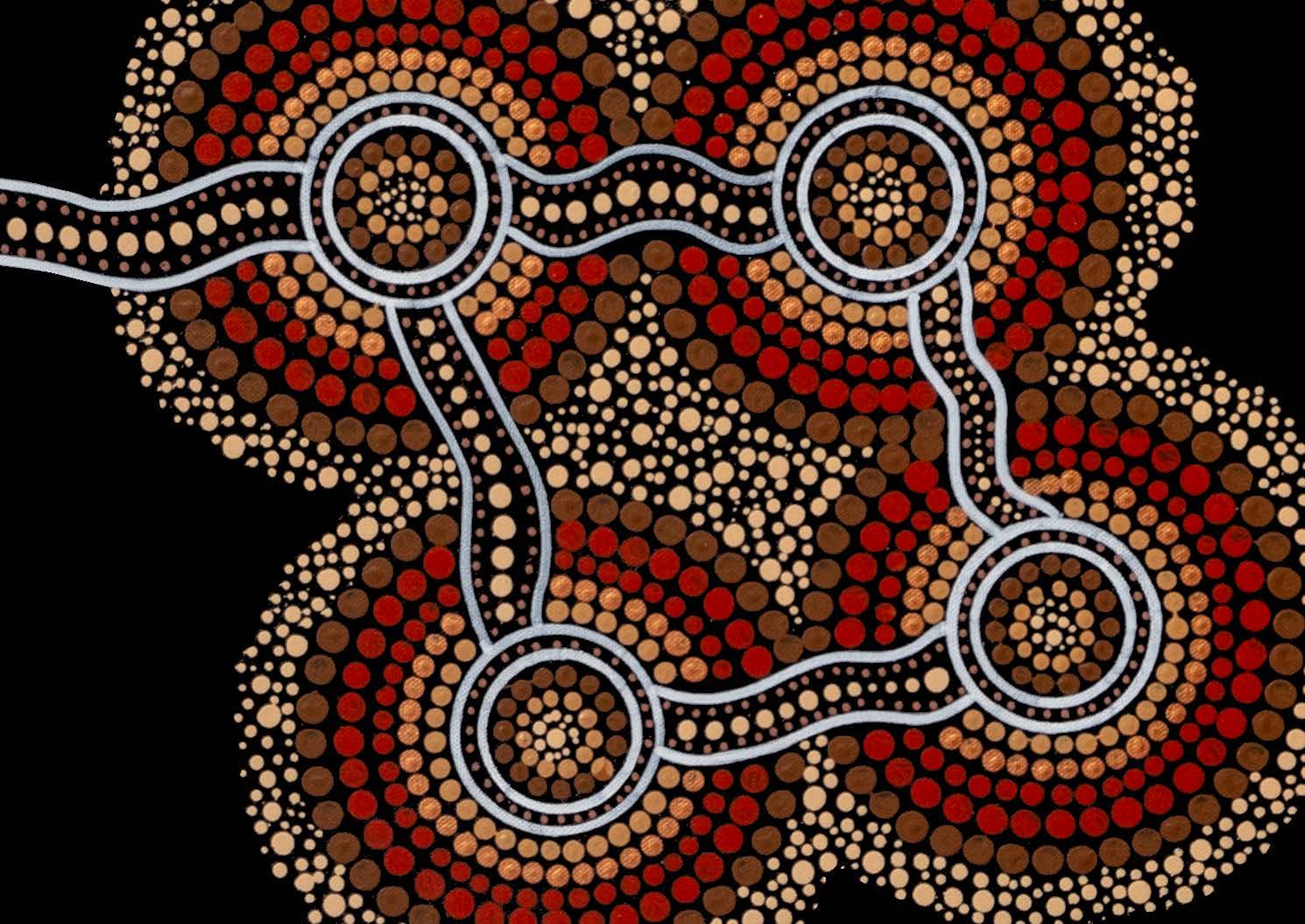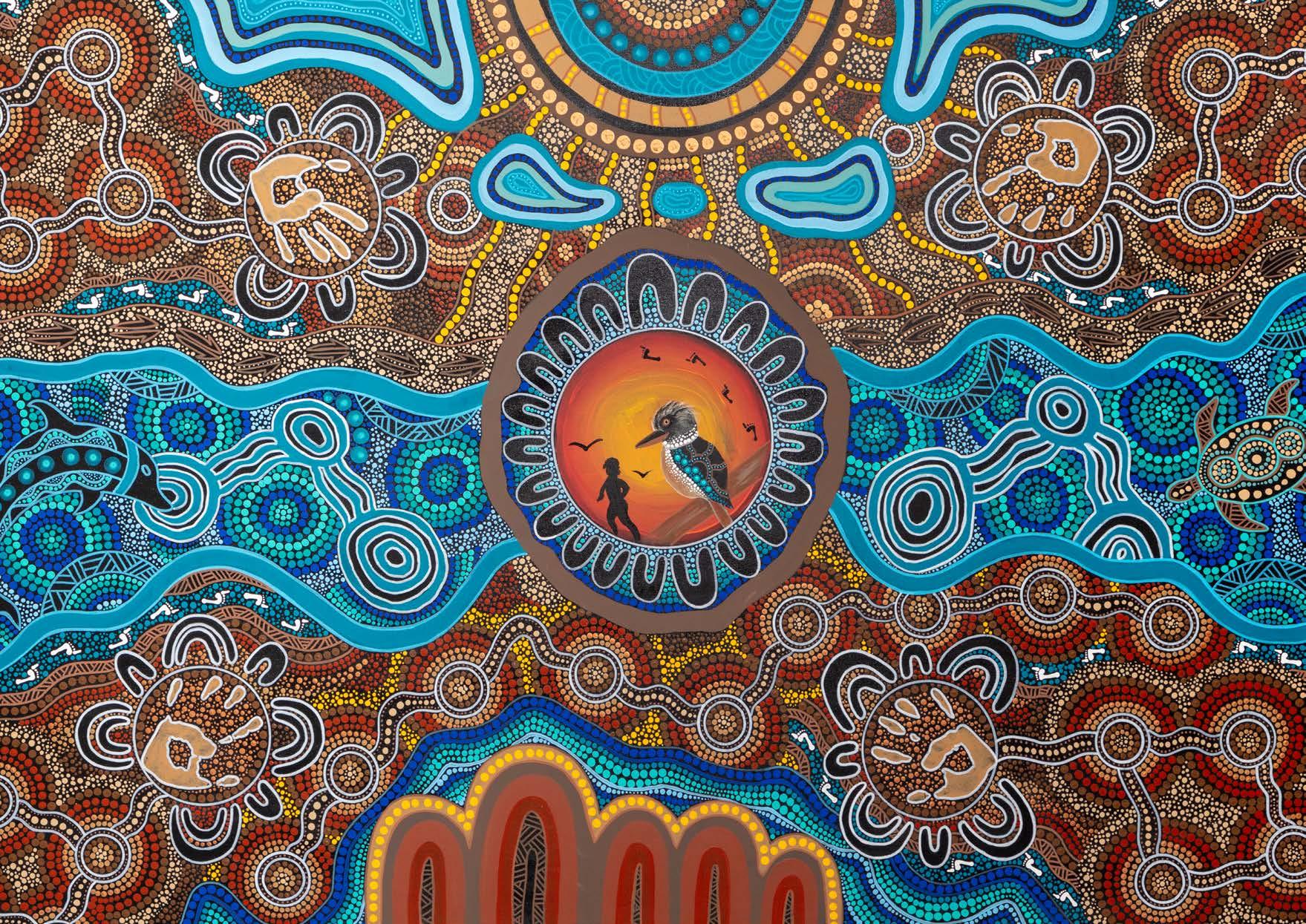
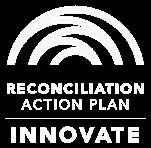
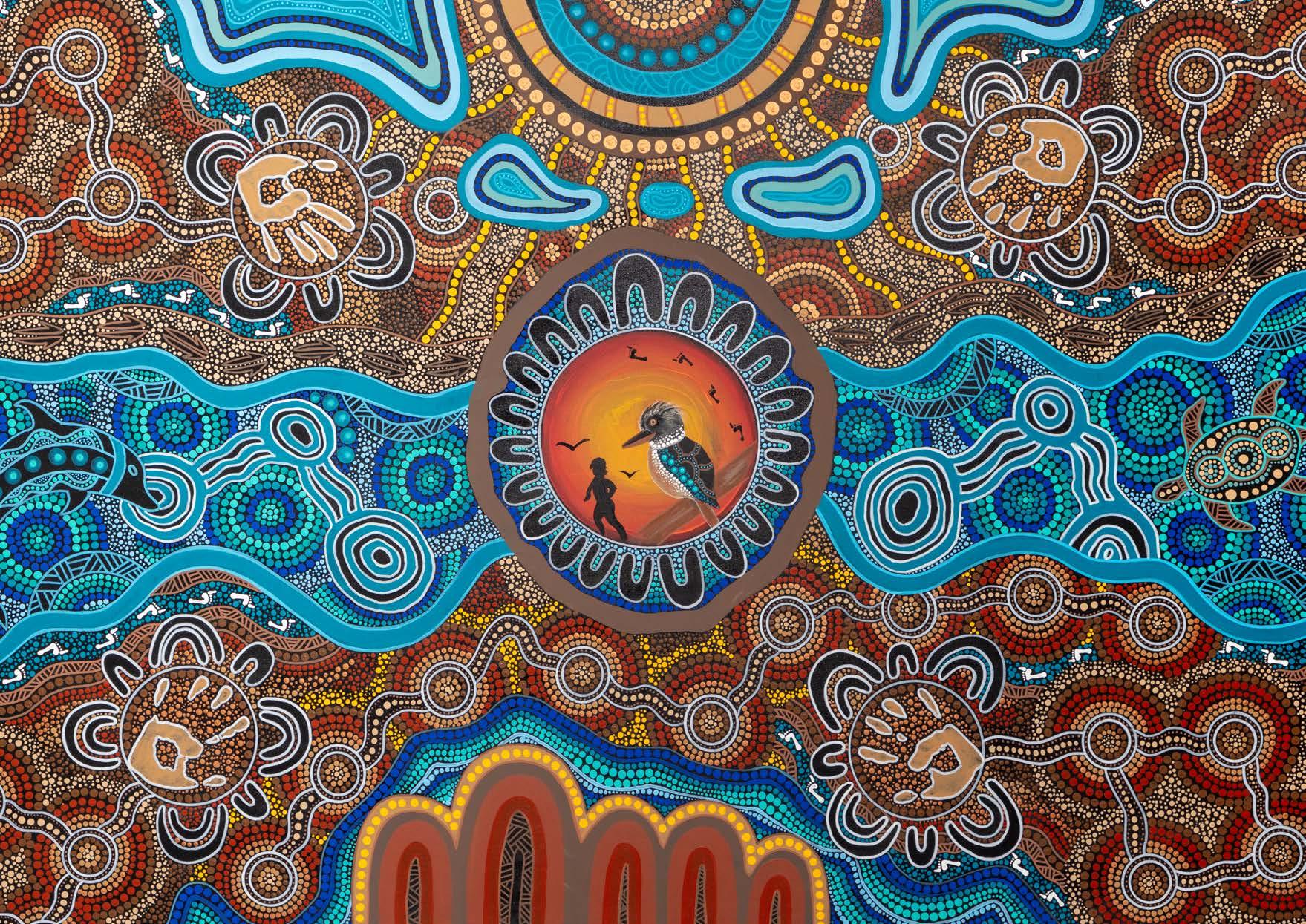






Act for Kids respectfully acknowledges the Traditional Custodians of the lands on which we work and gather. We pay our deepest respects to Elders past, present, and emerging, who are the keepers of memories, traditions, cultures, hopes, and aspirations of Aboriginal and Torres Strait Islander children, young people and families.
We further recognise the grief and loss Aboriginal and Torres Strait Islander families and communities have experienced from colonisation, resulting in historical, cultural, and intergenerational trauma.
At the same time, we honour and celebrate the enduring strength, survival, and resilience of Aboriginal and Torres Strait Islander peoples — the world’s oldest living culture.
Act for Kids especially acknowledges First Nations children, young people, and families with whom we walk alongside. Act for Kids is committed to listening, learning, and supporting their journey in culturally humble and respectful ways and we stand in solidarity with them now and always.
“OUR
The meaning of our Vision for Reconciliation
Our Vision reflects Act for Kids’ deep commitment to walking alongside Aboriginal and Torres Strait Islander children, families, and communities on a journey of healing, empowerment, and hope. We recognise the enduring strength, resilience, and wisdom of First Nations peoples and acknowledge the vital role of culture, kinship, and Country in the lives of children and families.
VISION is for Act for Kids to be a beacon of cultural humility, respect, inclusivity, and collaboration, where Aboriginal and Torres Strait Islander children and families are supported to thrive in culture.
By partnering with First Nations leaders and communities, and ensuring cultural capability is woven into the inclusive and diverse fabric of our organisation, we aim to create culturally safe pathways that support Aboriginal and Torres Strait Islander children, young people, families and communities.
Together,
we strive for an equitable society and build together…a future grounded in trust, self-determination, integrity, and shared purpose.”
By calling ourselves a beacon, we acknowledge our responsibility to lead with respect, authenticity, and cultural humility. This means we create inclusive environments where Aboriginal and Torres Strait Islander peoples’ voices are not only heard but are central to how we design and deliver services.
We know that achieving a better future requires more than good intentions. It calls for active partnerships with First Nations leaders, children, young people, families and communities, the courage to challenge systemic barriers, and a commitment to embedding cultural humility, safety and responsiveness at every level of our organisation.
Our Vision is a call to action – to work together with children and families to create opportunities that strengthen support, care, leadership, and meaningful pathways for growth. It is a promise to build trust, nurture integrity, and work together in a spirit of reconciliation, truth-telling, and shared purpose. This is how we create lasting change – for children, for families, and for generations to come. — Act for Kids Reconciliation Action Plan Working Group —

Act for Kids has a long history in supporting Aboriginal and Torres Strait Islander communities and this plan represents more than a commitment to continue that work; it is a powerful step forward towards recognition, respect, and empowerment. It reflects our shared belief that every child, every family, and every community deserves to be seen, heard, and given the opportunity to thrive.
For me, reconciliation is deeply personal. It’s about acknowledging the strength and resilience of our First Nations peoples while facing the truth of our history with open hearts and minds. I have the privilege of being a part of communities rich in culture, yet burdened by the inequalities, and I have seen firsthand the importance of creating spaces where our children feel safe, valued, and connected to their culture. This is why I stand with Act for Kids as we work towards a future free from fear, trauma, and exclusion.
Through this RAP, we commit to creating culturally safe practices and genuine partnerships with Aboriginal and Torres Strait Islander peoples and communities. We commit to listening, learning, and evolving, so our actions inspire trust and respect. This effort is about building relationships based on humility and shared understanding, ensuring that our approach to care honours cultural identity and strength.
I urge everyone connected with Act for Kids – our partners, team members, supporters, and communities to take this plan to heart. Reconciliation takes all of us working together. It requires us to challenge biases, uplift voices, and build bridges of understanding. Our collective effort has the power to pave a brighter path for future generations.
This is our call to action. Advocate for change, educate yourself and others, surround yourself with diverse perspectives, and help us create spaces where every child can grow up with pride in who they are.
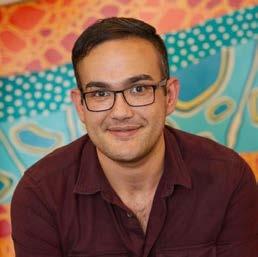
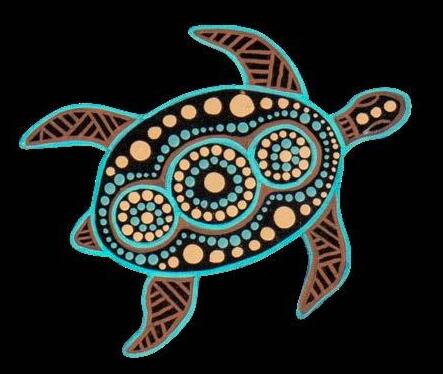
Act for Kids acknowledges the Traditional Custodians of the lands on which we work, walk and live. We pay our respects to Elders past and present and acknowledge the children and young people who are the future Elders, who will carry with them the stories, histories and wisdom of our world’s oldest living cultures. We are proud to present our second Innovate Reconciliation Action Plan (RAP), and the actions Act for Kids will take as we continue on our journey of reconciliation.
At Act for Kids our vision is for all kids in Australia to have a safe and happy childhood. For Aboriginal and Torres Strait Islander children and young people a safe and happy childhood is one where they feel culturally safe, grow strong within their families and communities and thrive while living and breathing their culture.
Since the launch of our first Innovate RAP in 2021, we have continued our journey of recognition and commitment to Aboriginal and Torres Strait Islander peoples within our organisation. This milestone marked a significant achievement of the 2015 Strategic Plan, which set the goal to develop a RAP and formally build on and sustain our reconciliation efforts.
Over the years, we have successfully implemented a range of actions across our services, including building stronger relationships within communities and establishing new partnerships with Aboriginal and Torres Strait Islander organisations.
We have been working towards greater recruitment and retention of Aboriginal and Torres Strait Islander team members, engaging in NAIDOC and National Reconciliation Week events to celebrate and promote cultural awareness,
have established a Diversity, Equity and Inclusion role, identified community engagement opportunities, and continued to support ongoing cultural capability training for our team members.
But we still have much to learn and a way to go. As we implemented the first Reconciliation Action Plan, we were challenged by the need to listen more deeply to Aboriginal and Torres Strait Islander children, young people and families and gain a better understanding of our need for growth and change reflecting on how we do things if we are to achieve positive and sustainable goals. At the same time, we have faced the challenge of allocating appropriate resources to these initiatives, particularly given the constraints of our operational budgets.
To address these challenges, our second Innovate RAP has an even stronger focus on building respectful relationships. It explores how we include Aboriginal and Torres Strait Islander peoples’ views and voices across all levels of our organisation and services.
We will also be doing more to increase cultural learning opportunities for all team members, provide tailored information and support for Aboriginal and Torres Strait Islander peoples, affirm culture for children and young people including welcome bags that focus on culture and will continue to review our core service delivery models to be progressively more culturally inclusive and focused on cultural humility.
We also understand the importance of improving our physical environment so that the places in which we work and provide services are culturally affirming, welcoming and offer a sense of cultural safety for Aboriginal and Torres Strait Islander children, young people and families. As we implement our second Innovate RAP, our commitment to reconciliation has not faded and our determination remains strong. We have the foundations we need to stay focused over the next two years as we work towards reconciliation alongside Aboriginal and Torres Strait Islander Elders, children, young people, and communities. Our determination remains strong as we continue this journey.
At Act for Kids, this commitment is lived out every day. We walk alongside Aboriginal and Torres Strait Islander peoples, who are our colleagues, clients and families. We are dedicated to protecting and promoting Aboriginal and Torres Strait Islander cultures, and to helping create a better future with First Nations peoples.
We are committed to playing our part to protect and promote Aboriginal and Torres Strait Islander cultures, and to help create a better future with First Nations peoples. Act for Kids stands in solidarity with First Nations children, young people and families now and always.
Nigel Harris
Nigel Harris AM, Chairman
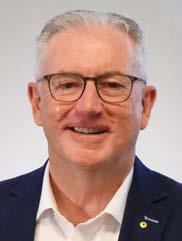

Dr Katrina Lines, CEO

Reconciliation Australia commends Act for Kids on the formal endorsement of its second Innovate Reconciliation Action Plan (RAP).
Since 2006, RAPs have provided a framework for organisations to leverage their structures and diverse spheres of influence to support the national reconciliation movement.
With close to 3 million people now either working or studying in an organisation with a RAP, the program’s potential for impact is greater than ever. Act for Kids continues to be part of a strong network of more than 3,000 corporate, government, and not-for-profit organisations that have taken goodwill and transformed it into action.
The four RAP types — Reflect, Innovate, Stretch and Elevate — allow RAP partners to continuously strengthen reconciliation commitments and constantly strive to apply learnings in new ways.
An Innovate RAP is a crucial and rewarding period in an organisation’s reconciliation journey. It is a time to build the strong foundations and relationships that ensure sustainable, thoughtful, and impactful RAP outcomes into the future.
An integral part of building these foundations is reflecting on and cataloguing the successes and challenges of previous RAPs. Learnings gained through effort and innovation are invaluable resources that Act for Kids will continuously draw upon to create RAP commitments rooted in experience and maturity.
These learnings extend to Act for Kids using the lens of reconciliation to better understand its core business, sphere of influence, and diverse community of staff and stakeholders.
The RAP program’s emphasis on relationships, respect, and opportunities gives organisations a framework from which to foster connections with Aboriginal and Torres Strait Islander peoples rooted in mutual collaboration and trust.
This Innovate RAP is an opportunity for Act for Kids to strengthen these relationships, gain crucial experience, and nurture connections that will become the lifeblood of its future RAP commitments. By enabling and empowering staff to contribute to this process, Act for Kids will ensure shared and cooperative success in the long-term.
Gaining experience and reflecting on pertinent learnings will ensure the sustainability of Act for Kids’ future RAPs and reconciliation initiatives, providing meaningful impact toward Australia’s reconciliation journey.
Congratulations Act for Kids on your second Innovate RAP and I look forward to following your ongoing reconciliation journey.
Karen Mundine Reconciliation Australia CEO
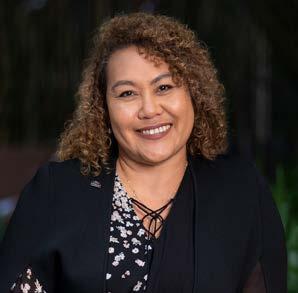
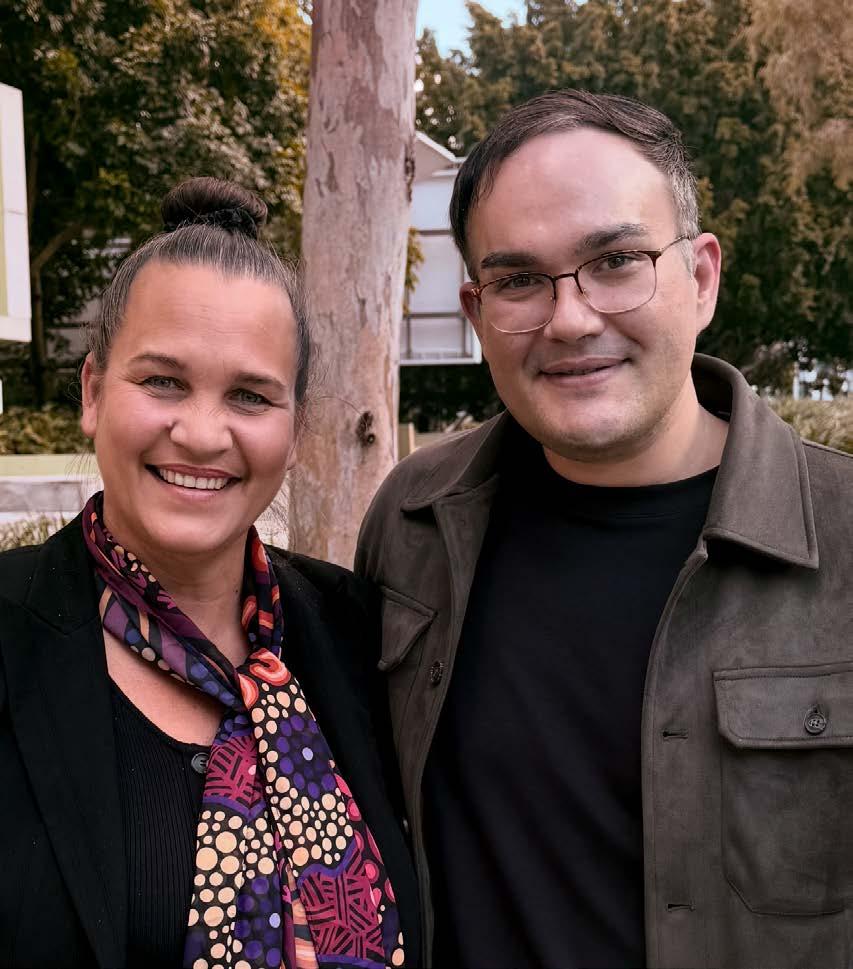
Tammy Wallace Mahjah, Director of Cultural Capability & Strategy and Gavin Mackey, Act for Kids Board Member
Ultimately, the RAP is about building a future where First Nations children can walk confidently on life’s journey, grow and thrive in culture – proud of their heritage, safe in their communities, and supported to achieve their dreams. As a mother, sister, aunt, and mentor, I am driven by the hope that our work today will leave a legacy of justice, dignity, and opportunity for generations to come.
"I want every child, young person, and family who walks through the doors of Act for Kids and Youthrive to feel seen, respected, and empowered."
I want them to know that their culture is not just acknowledged, but cherished; that their voices matter; and that reconciliation is not a destination, but a promise we renew every day.
The Reconciliation Action Plan, to me, is an expression of respect and hope – for my people, for my community, and for the nation we dream of together. It is a call to action, a commitment to learning and growing, and guiding us towards a truly reconciled Australia where First Nations children grow and thrive in culture with family and community.
Tammy Wallace Mahjah
Act for Kids is a for-purpose organisation that delivers evidence-led professional therapy and support services for children and families who have experienced or are at risk of harm. Our vision is all kids have a safe and happy childhood. For Aboriginal and Torres Strait Islander children and young people, a safe and happy childhood is one where they feel culturally safe, grow strong within their families and communities, and thrive while living and breathing their culture.
Act for Kids operates over 30 centres across Australia from Adelaide all the way up to the Cape York Peninsula, and has more than 552 team members, of which 87 are Aboriginal and/or Torres Strait Islander peoples. Our services include integrated therapy, support for vulnerable families, special workshops to empower kids and safe houses in remote Aboriginal communities. In the last year Act for Kids supported approximately 5,084 First Nations children, young people and families which represents a rate of 16 percent of clients across four programs of Therapy (including Youthrive), Family Support, Safe Kids and Individual Support Services.
Through prevention, treatment, research, education and advocacy, we are committed to supporting thousands of children, young people and their families. Act for Kids is here to support children and families who are experiencing vulnerability as we know child abuse and neglect is one of Australia’s most pressing social problems impacting on children’s wellbeing. The results of the Australian Childhood Maltreatment Study in 2024, the first population level prevalence study of abuse and neglect, showed that 62 percent of people in this country have experienced childhood abuse, neglect or violence.
Substantiated data indicate that a child is abused or neglected every 11 minutes in Australia. The trauma from abuse and neglect can negatively impact children’s cognitive, social, emotional and physical development. Without intervention, this can lead to lifelong problems including mental and physical ill-health, unemployment, substance misuse, incarceration and suicide.
Act for Kids understands that the majority of Aboriginal and Torres Strait Islander children and young people grow up with family, connected to culture and community and have a safe and happy childhood.
However, statistically there is still sadly a disproportionate number of Aboriginal and Torres Strait Islander children in the child protection system, both in out-of-home care and as the subjects of investigations and assessments. Act for Kids understands that this needs to change and we all need to focus on reducing the overrepresentation of Aboriginal and or Torres Strait Islander children in the child protection system.
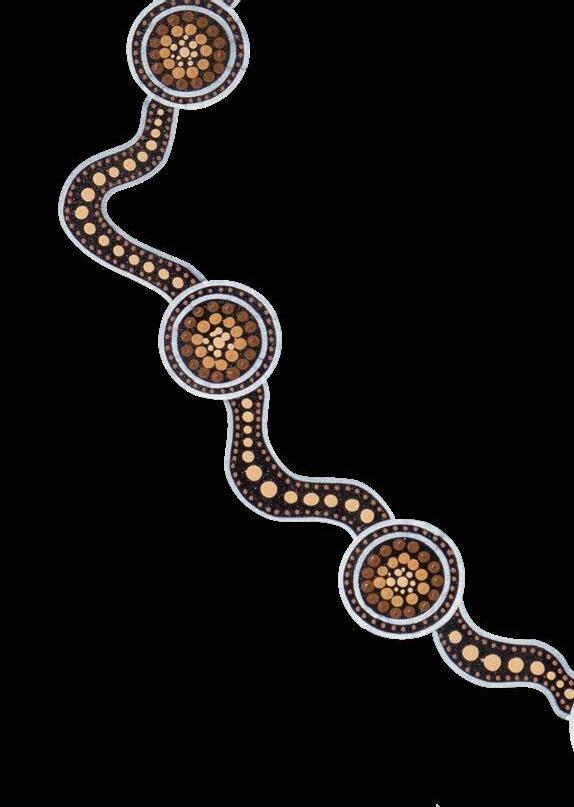

Act for Kids is strongly committed to and supportive of the Secretariat of National Aboriginal and Islander Child Care’s (SNAICC’ s) Family Matters Campaign, including the elimination of the over-representation of Aboriginal and Torres Strait Islander children in out-of-home care.
To support the reduction of First Nations children in child protection systems, Act for Kids has a dedicated team of psychologists, social workers, speech therapists, early education specialists, counsellors, occupational therapists, cultural advisors and family support workers who have helped hundreds of thousands of children and families since 1988.
“Act for Kids understands that the majority of Aboriginal and Torres Strait Islander children and young people grow up with family, connected to culture and community and have a safe and happy childhood.”
This RAP reflects the importance of culture and family for Aboriginal and Torres Strait Islander children and young people. Act for Kids’ focus is on supporting healing whilst also acknowledging the resilience, survival, and enduring connection of the oldest living culture in the world. Act for Kids together with First Nations communities will continue to learn, listen, and work toward a brighter, more equitable future for all children.
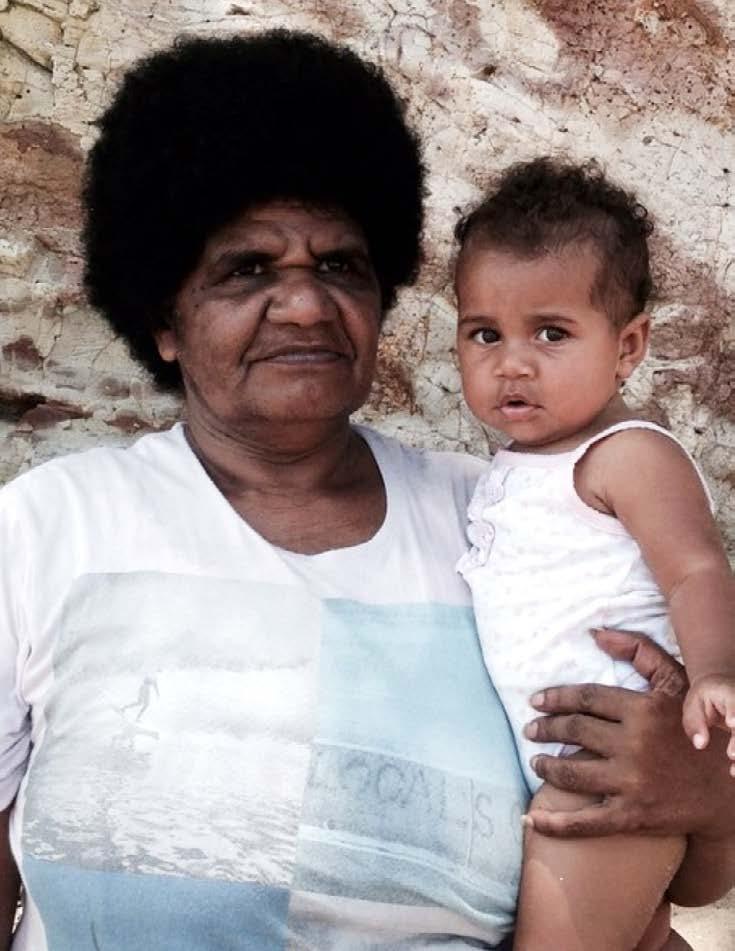
Act for Kids is a founding member of Allies for Children. Allies for Children is a committed partnership of chief executives working across the child, youth and family sector to ignite long term, positive outcomes for vulnerable children, young people, and families.
We believe through collective wisdom and genuine collaboration, our organisations and the child, youth, and family services sector can drive real and sustained change to benefit generations now and into the future.
Our immediate responsibility is to respond to the overrepresentation of Aboriginal and Torres Strait Islander children and young people in out-of-home care. We will partner with Aboriginal and Torres Strait Islander leaders, Aboriginal community-controlled organisations (ACCOs), peaks and government to realise reforms that reduce the rates of children being removed from their family, ensuring the rights of Aboriginal and Torres Strait Islander children to grow up safe with kin, culture, and community.
Allies for Children is united to inspire positive change, in the belief that all children and young people deserve to be protected and nurtured. We carry this responsibility together.

Act for Kids is also a part of the First Nations NGO (non-government organisations) Alliance, our Director of Cultural Capability and Strategy is an active member. The First Nations NGO Alliance consists of Aboriginal and Torres Strait Islander leaders in prominent positions within various non-Government and non-Aboriginal organisations in the child, youth and family services protection sector.
This self-determined group was established through their own initiative and operates independently on matters affecting Aboriginal and Torres Strait Islander children, young people, and families. Despite being employed by supportive organisations, the members maintain independence in thought and voice, aiming to enhance their focus and influence.
Our purpose is driven by the need to address the over-representation of Aboriginal and Torres Strait Islander children in care. We strive to harness our collective insights, commitment, and advocacy to facilitate relationships between our peoples, communities, and organisations in service of our children.
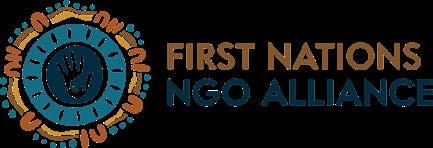
As an organisation committed to reconciliation, we recognise the importance of using our influence to promote culturally safe, inclusive, and equitable outcomes for Aboriginal and Torres Strait Islander children, families, and communities. Throughout the life of this RAP (2025–2027), Act for Kids will continue to strengthen its influence in the following key areas:
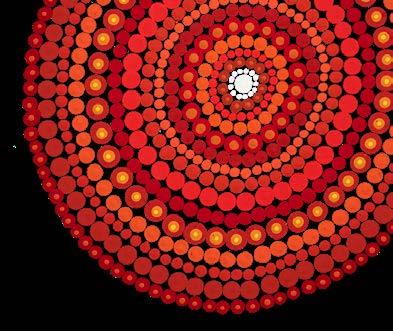
♥ INFLUENCING GOVERNMENT THINKING AND POLICY
Act for Kids contributes to public policy discussions and government consultations through formal submissions, expert advice, and strategic advocacy. We actively seek opportunities to influence policy and funding decisions that impact the lives of children and young people, and are committed to ensuring that the voices, rights, and needs of Aboriginal and Torres Strait Islander children are prioritised in those conversations.
♥ MEDIA ADVOCACY
Act for Kids is regularly sought by national and regional media outlets to provide expert commentary on child safety, trauma, and wellbeing. We will continue to use this platform to raise awareness of the unique challenges faced by Aboriginal and Torres Strait Islander children and advocate for culturally responsive systems and services.
♥ EDUCATION SECTOR
Through our Learn to be Safe with Emmy and Friends program, we engage with primary school-aged children across diverse communities, including Aboriginal and Torres Strait Islander children, equipping them with personal safety skills and fostering respectful relationships.
♥ SECTOR PARTNERSHIPS
Our collaboration with Bravehearts and the Daniel Morcombe Foundation in the E-kidna program highlights our commitment to working collectively to improve outcomes for children and young people, including Aboriginal and Torres Strait Islander children and young people, through accessible, traumainformed education.
♥ PHILANTHROPIC PARTNERSHIPS
We also recognise our influence through relationships with philanthropic and corporate partners.
Through these channels and others, Act for Kids will continue to use its voice, relationships, and expertise to advocate for reconciliation, elevate Aboriginal and Torres Strait Islander perspectives, and work toward a more equitable future for all children and young people.
Our work with Aboriginal and Torres Strait Islander children and young people is guided by our five RAP Commitments:
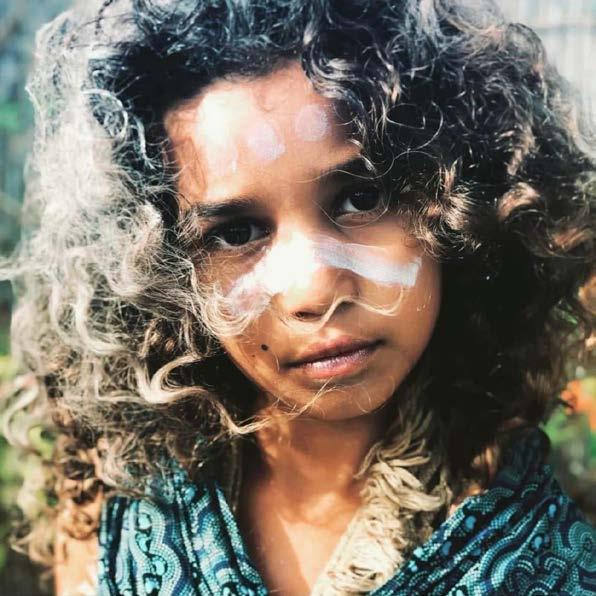
We work alongside our children and young people to affirm, celebrate and support their connection to their culture, helping them to feel empowered in their cultural identity.
We practise in a manner that is culturally safe, inclusive and responsive to the needs of Aboriginal and Torres Strait Islander communities using culture as a strength.
We strive to be ecologically focussed including environments that affirm culture, are safe, welcoming, and respectful of First Nations peoples.
We are committed to prioritising the recruitment and retention of First Nations team members, supporting their growth and ensuring our organisational cultural capability continues to evolve.
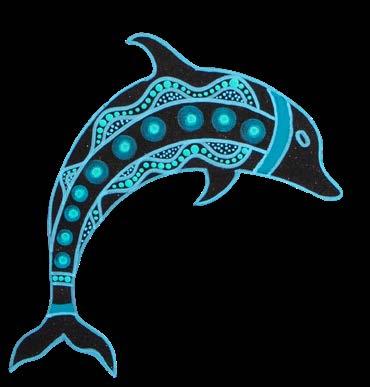
We are unwavering in our commitment to practising cultural humility, ensuring it is embedded across our people, services, and processes.
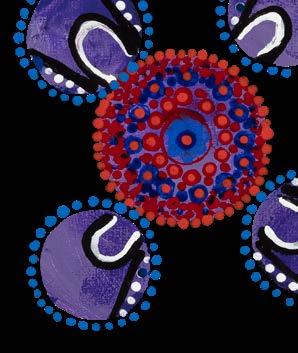
In 2024, we began the development of our second Innovate RAP with the goal of creating a meaningful and impactful framework for reconciliation.
This journey started with a fresh approach to our vision and deliverables, ensuring they would resonate deeply with Aboriginal and Torres Strait Islander children and families.
From the outset, we committed to challenging our thinking and producing outcomes that are not only relevant but transformative and achievable.
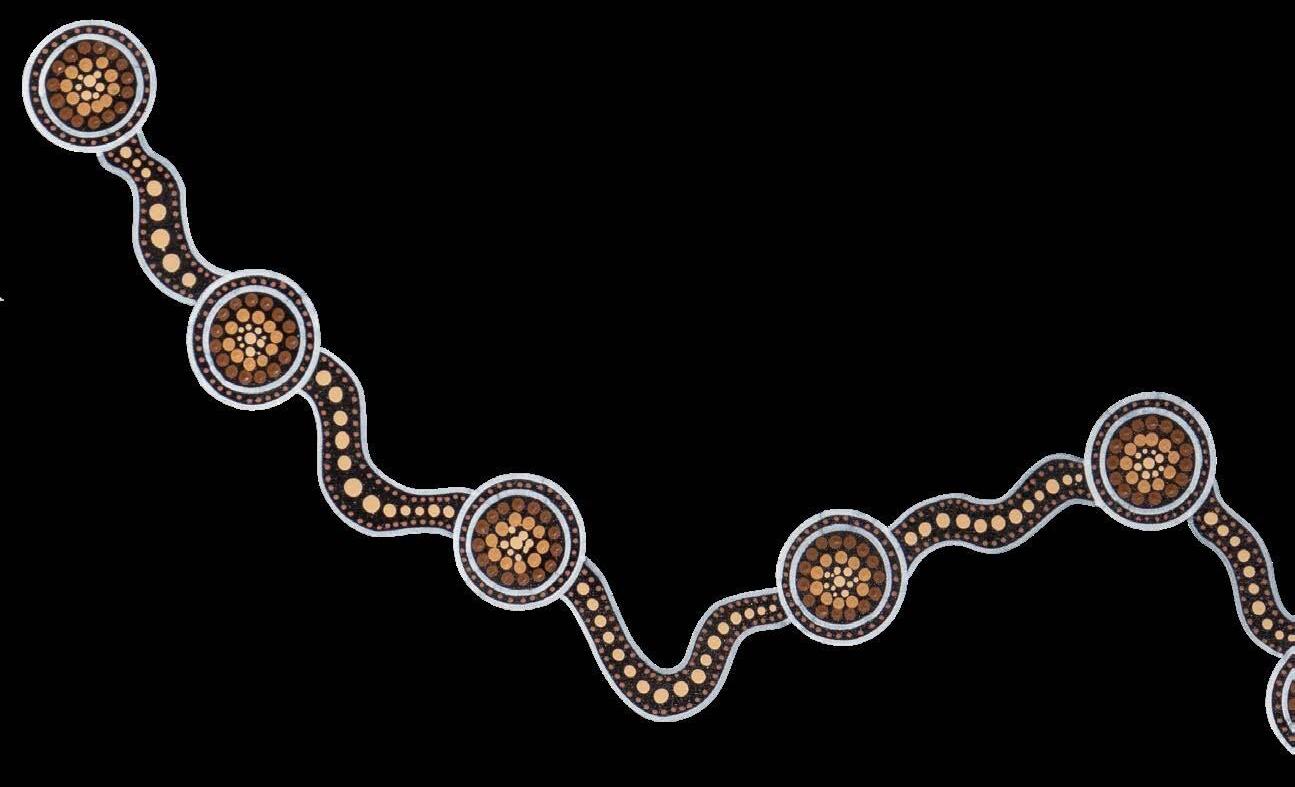
To support this process, we collaborated with Krueger Consultancy Services (KCS), a respected First Nations advisory firm. KCS has been an invaluable ally, walking alongside our RAP Working Group and playing a key role in guiding our cultural competence initiatives.
Their expertise is essential in shaping our approach and ensuring Aboriginal and Torres Strait Islander children and young people are at the centre of everything we do.
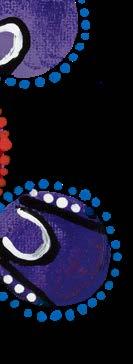
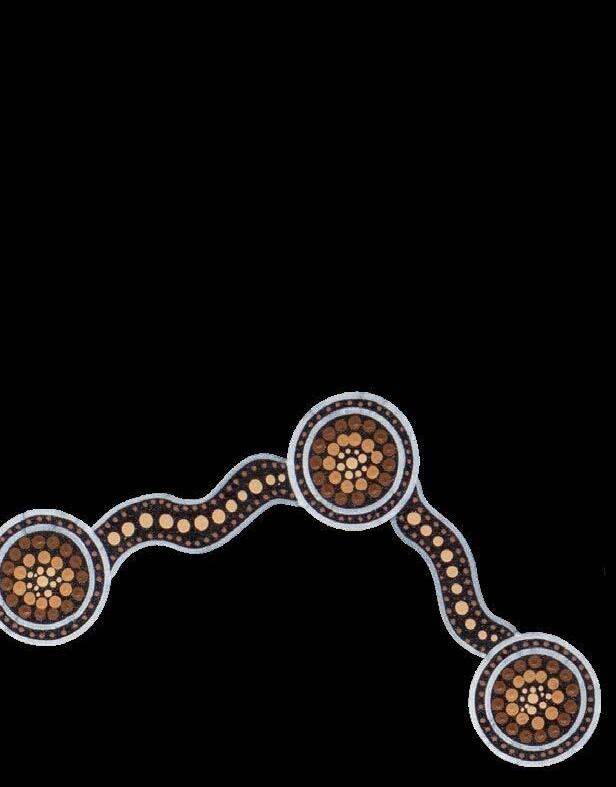
Dr Katrina Lines continues to lead our reconciliation efforts as the RAP Executive Champion, a role she has held since our first Innovate RAP. Katrina's unwavering commitment to reconciliation is a driving force behind our progress.
Her advocacy and personal dedication to improving the lives of Aboriginal and Torres Strait Islander children are testament to her deep respect for First Nations peoples.
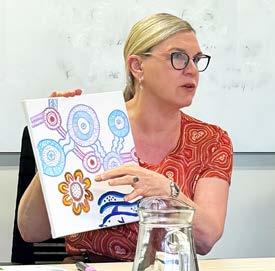
The RAP Working Group is comprised of Act for Kids team members from a variety of occupational groups, levels and regions of the organisation. Five of the 11 members are First Nations team members and have played an immensely valuable role in guiding the deliverables of this RAP. The RAP Working Group members include:
} Director Cultural Capability and Strategy (Chair)
} Cultural Liaison Practitioner (Brisbane)
} Director Family Support Services Southern (Toowoomba)
} Specialist Family Support Practitioner – Identified (Brisbane)
} Specialist Family Support Practitioner – Identified (Townsville)
} Specialist Family Support Practitioner (Gold Coast)
} Engagement and Referral Practitioner (Mackay)
} Psychologist (Gold Coast)
} Therapist (Cairns)

Katrina stands in solidarity with Aboriginal and Torres Strait Islander peoples, acknowledging their profound loss, and the cultural and intergenerational trauma caused by the impacts of colonisation.
} Practice Quality Manager - Individual Support Services (Gold Coast)
} Senior People and Culture Advisor (Diversity, Equity and Inclusion and Projects)
Our RAP Working Group, Chair, and Act for Kids leaders were warmly welcomed to Minjerribah by the Traditional Owners with a Welcome to Country, including cultural song, dance, and a smoking ceremony.
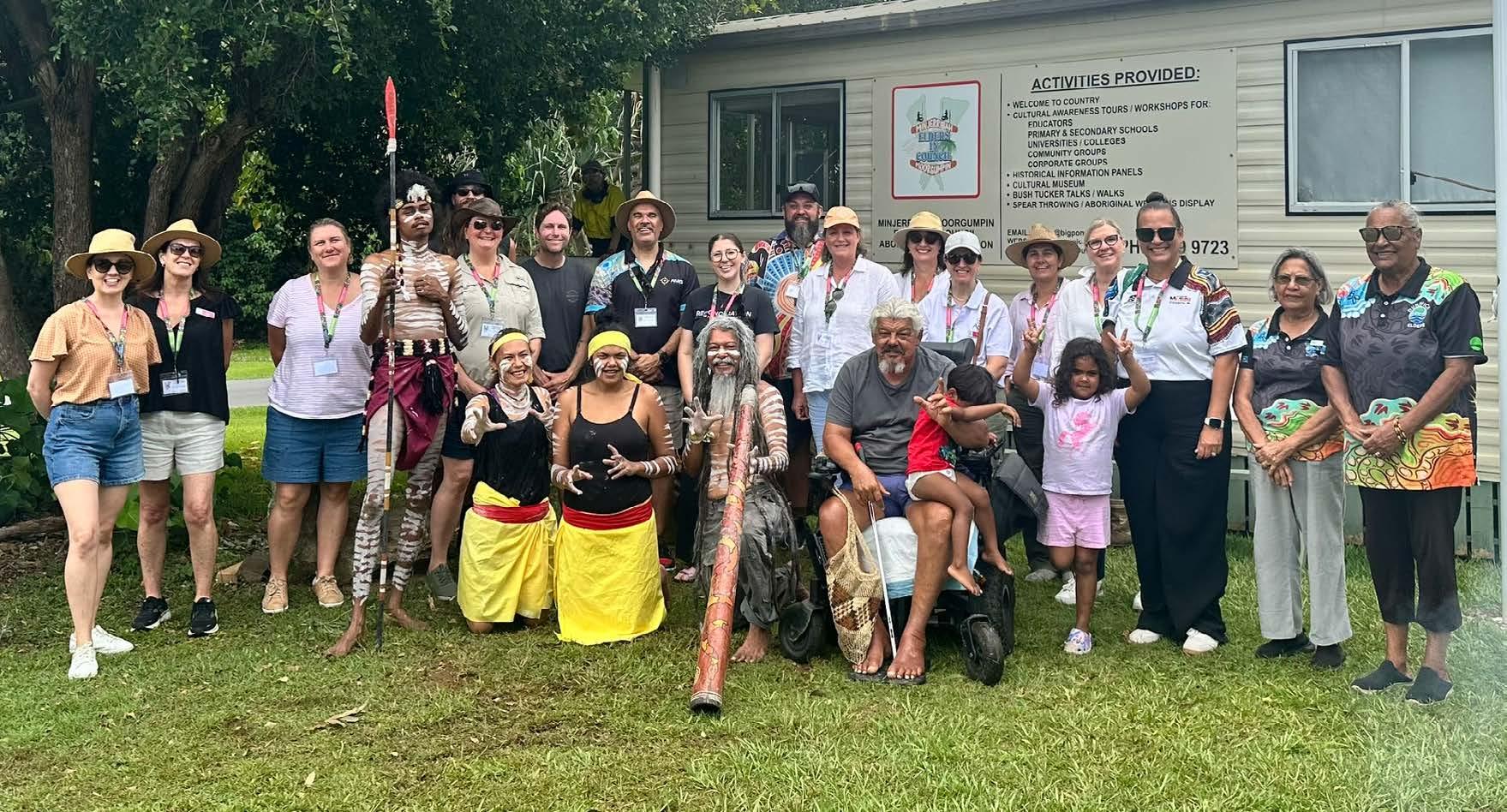
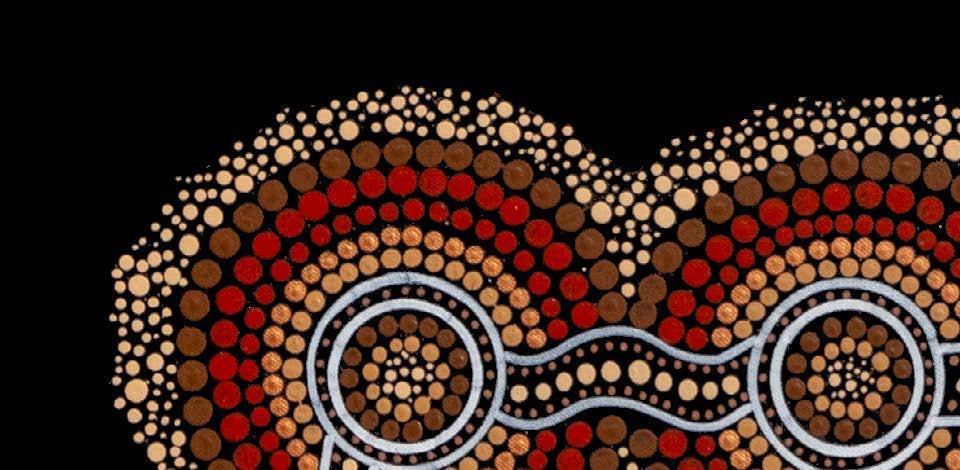

To inform the development of the RAP, the RAP Working Group, RAP Executive Sponsor, Executive Directors and Board Member spent a day on country with Minjerribah Moorgumpin Elders-in-Council Aboriginal Corporation (MMEIC) on Minjerribah (North Stradbroke Island).
This immersive experience included a Welcome to Country Smoking Ceremony by Traditional Owners and a day of truthtelling, where Elders shared the devastating loss of their ancestors and the ongoing impacts of colonisation on their people today. The group also visited sacred sites and engaged with bush tucker, gaining invaluable cultural insights.
This cultural immersion served as the ideal backdrop for workshopping and planning our second Innovate RAP. Aunty Cheryl Viellaris opened the workshop by sharing cultural knowledge on working with First Nations children and young people, which significantly shaped the definition of our vision. Aboriginal artist Daniel Evans then led an art workshop, where participants expressed their vision on canvas. This collaboration inspired the creation of the stunning visual display, Walking Each Other Home, which encapsulates the vision of the RAP.
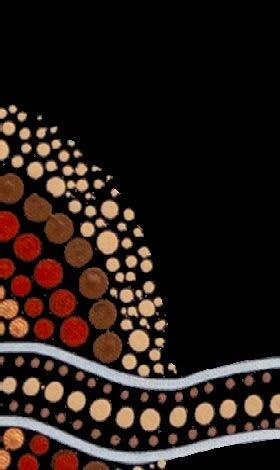
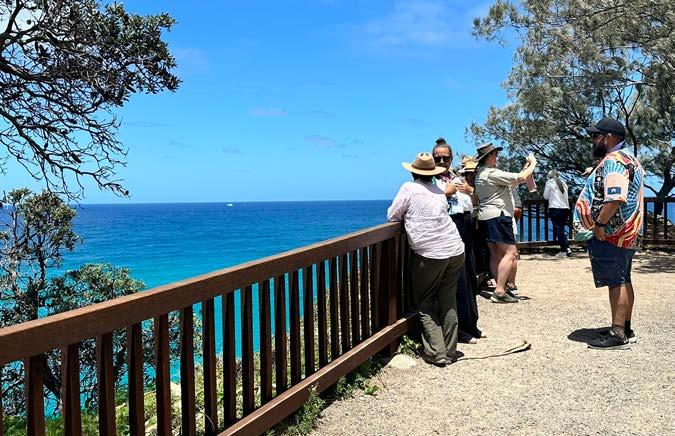
Following this, the RAP deliverables were refined through a series of workshops, yarning circles, and an open consultation process. Feedback from Act for Kids team members was integral to shaping the final version of the RAP, ensuring it reflects the diverse perspectives and insights across all our services.
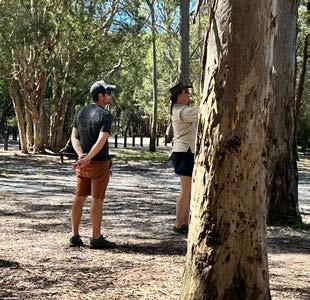
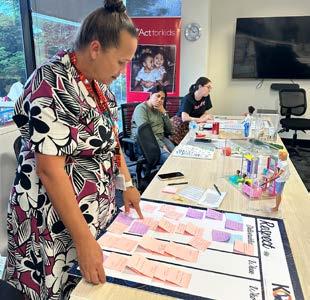
The RAP Implementation Champions will play an important role in supporting the delivery and success of our RAP. As a network representing local voices from across our service areas, they will help embed cultural change by championing reconciliation and culturally safe practices that reflect and respect the local communities and Country where we work.
They will act as key connectors, promoting awareness and understanding of RAP deliverables within their teams, while also providing valuable feedback and ideas to ensure actions are relevant and fit for purpose in each local context.
Champions will work closely with the RAP Working Group Chair to help shape and refine implementation in a way that reflects the diverse needs and experiences of communities and team members across all locations.
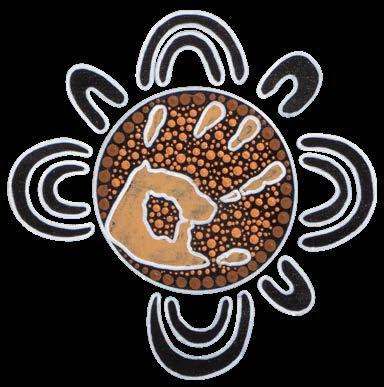
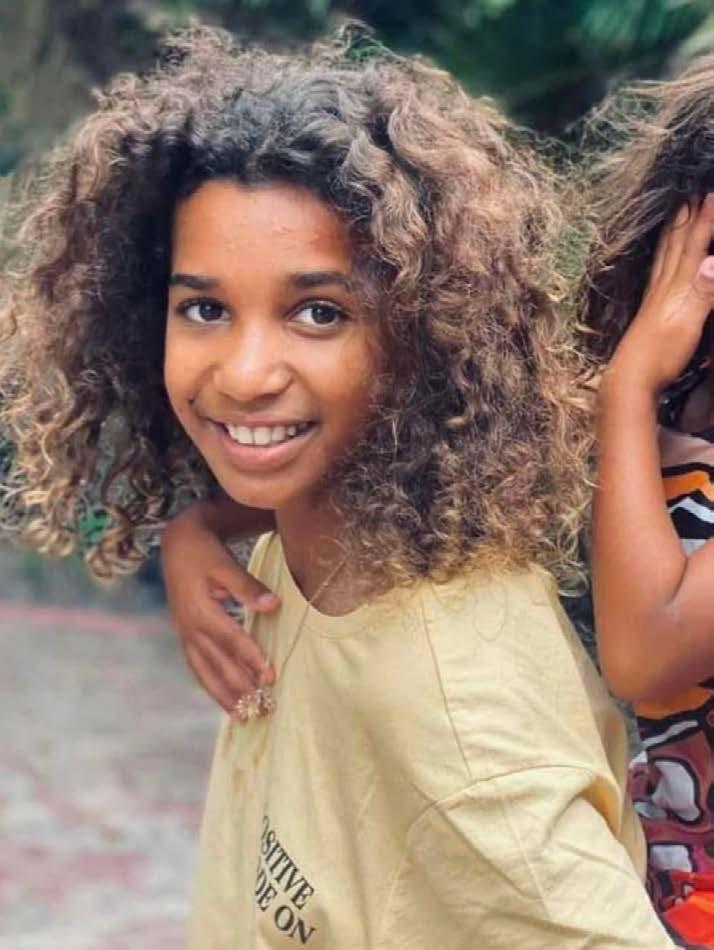

The development and implementation of our first Innovate RAP have offered us invaluable lessons that have shaped this RAP and will continue to guide its ongoing implementation. These reflections are key to strengthening our approach and ensuring lasting impact:
01 02 03 04 05
Setting realistic goals: We’ve learned the importance of being realistic about what we aim to achieve, ensuring that our commitments are actionable and achievable within the set timeframes.
Guided by Aboriginal and Torres Strait Islander voices: It’s essential that Aboriginal and Torres Strait Islander team members, children and families, and community partners are involved at every stage. Their insights help us shape the direction of our work and ensure we create meaningful outcomes with the communities we serve.
Executive leadership and support: The active involvement of our Executive Champion and the backing from our executive team members has been pivotal in ensuring alignment with our core values and reinforcing our commitment to reconciliation.
Engaging our dedicated team members: Our passionate and committed team members are integral to driving the progress of our reconciliation journey. Their enthusiasm fuels our collective efforts and challenges us to continually evolve.
Commitment to resources and governance: Allocating dedicated resources and establishing robust governance structures has ensured that we remain on track with the implementation of our RAP, enabling us to address challenges effectively and to achieve our goals.
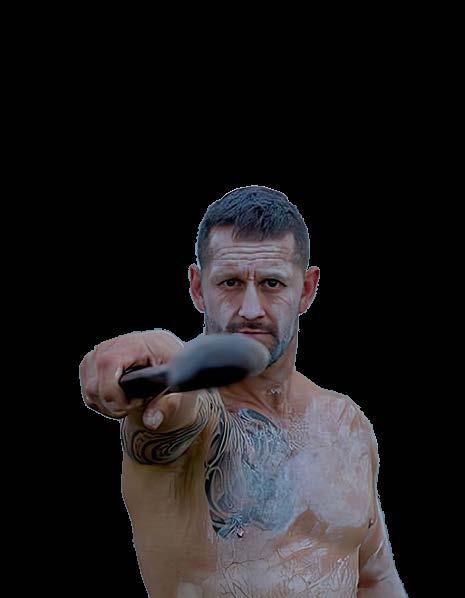
Act for Kids is honoured to have collaborated with artist Daniel Evans, a proud Gamilaroi Man from Coonabarabran, whose work powerfully embodies the themes of healing, connection, and cultural strength.
Drawing on his own lived experiences of trauma and recovery, Daniel channels his journey into every brushstroke, guided by his ancestors and deep cultural knowledge. His artistic vision aligns seamlessly with our purpose — using culture as a pathway to healing for children and young people.
With deep care and intention, Daniel has translated our purpose into a moving visual narrative that speaks directly to the heart.
“In a world where many youth find themselves navigating the challenges of care systems, the journey toward healing, stability, and unity becomes an essential mission. The concept of “Walking
Each Other Home” symbolises the commitment to guide and support these young individuals as they seek to find their place in the world.”
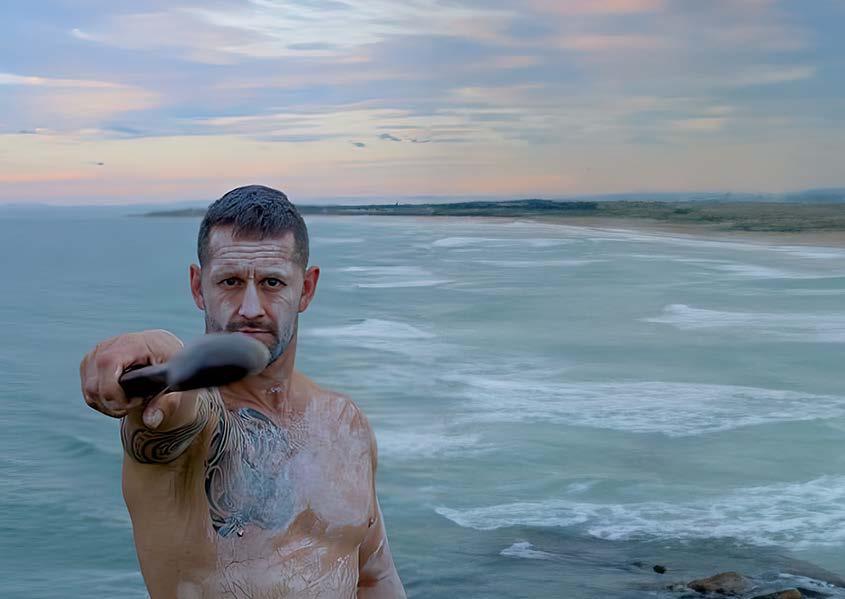
“Walking
Walking Each Other Home is more than a painting — it is a story of healing, belonging, and shared responsibility. This powerful artwork offers a journey through time and spirit, where past, present, and future are woven together on one canvas. It honours the strength of young people and the communities that support them, while paying tribute to those who walked before us and continue to guide us.
At the heart of the piece, handprints rise from the earth, encircled by Elders and children — a striking symbol of the sacred bond between knowledge and innocence. Each handprint is connected by four threads representing family, culture, connection, and care — the foundations of a strong and supportive community. These threads remind us that no young person walks alone.
Radiating from the centre are kookaburras, spiritual messengers that embody joy, guidance, and deep connection to Country. Their presence speaks to the power of laughter and the role of community in holding our children close. Surrounding this centrepiece are figures gathered in a yarning circle — representing the Act for Kids Reconciliation Action Plan (RAP) Working Group and our dedicated team. This circle symbolises the support, knowledge, and collective strength that help guide children on their journey.
Above, the sun casts its golden light, a symbol of warmth, hope, and the enduring presence of love that surrounds our young people. The spirits of ancestors drift through the air, gently watching over the land, reminding us that healing is both spiritual and cultural — and always deeply rooted.
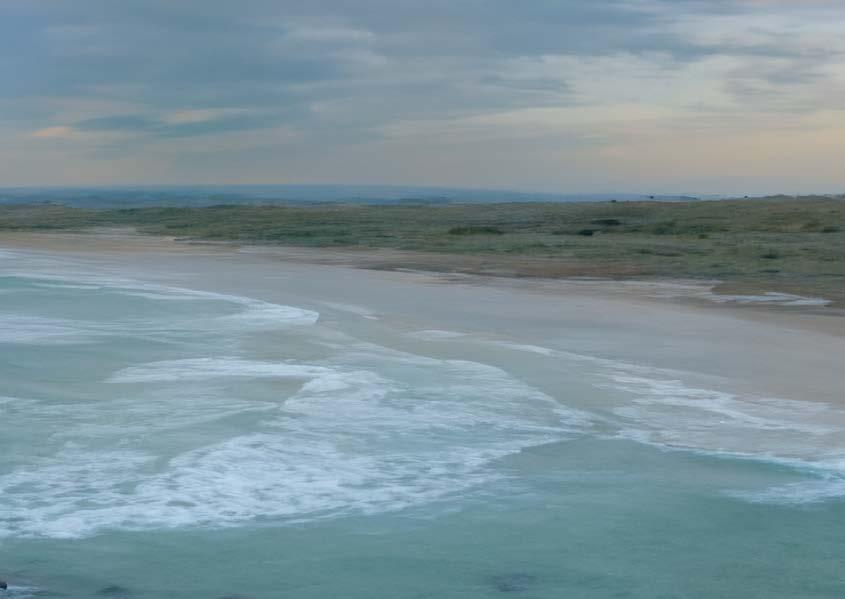
continued on page 23…
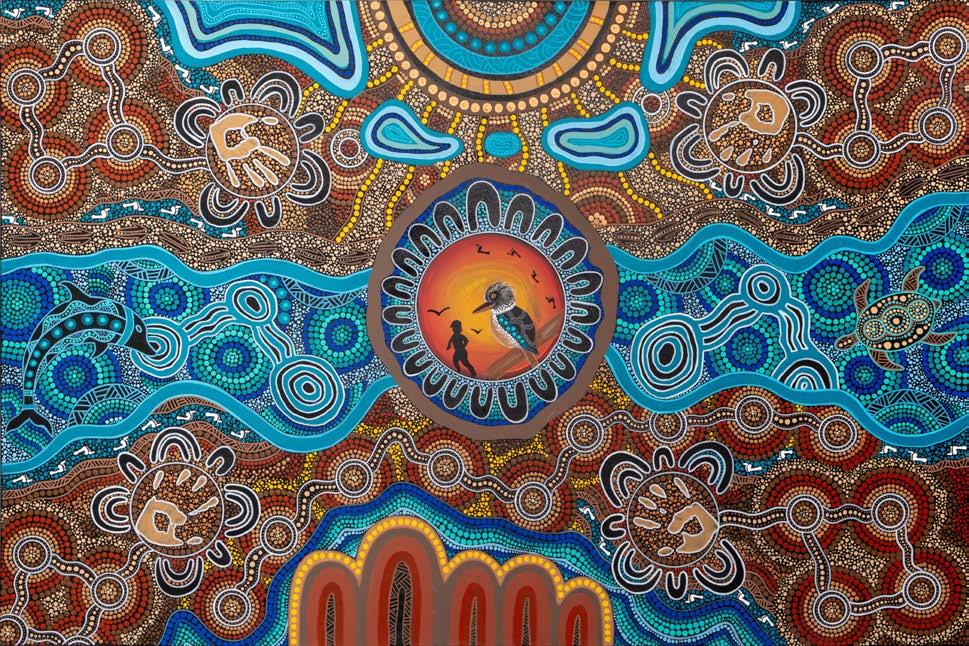
Daniel Evans (b. 1984)
Walking Each Other Home, 2024
Acrylic on canvas
Woven throughout the painting are sacred animals, each chosen for their symbolic significance:
The dolphin, playful and intelligent, represents gentle guidance — leading young people safely through life’s unpredictable waters.
The turtle, ancient and wise, symbolises protection, nurturing, and resilience — reminding us that healing is a slow and sacred process.
Along the base of the painting, mountains stand firm, representing endurance and strength, a place of grounding for those seeking safety and stability.
At its core lies a gathering place — a space for yarning, listening, and collective growth. Here, stories are honoured, voices are heard, and transformation begins. It is in this space that we foster unity, empower truthtelling, and nurture healing.
Walking Each Other Home is a visual affirmation of our shared commitment: when we walk beside our children — with truth, compassion, and unity — we not only help them find their way, we strengthen the path for all of us.
Through this work, Daniel Evans invites us to reflect, to connect, and to continue building a future where every child feels safe, supported, and deeply loved.
“And in walking them home… we find our own way too.”

Justin is from the Traditional Country of Darumbal in the Rockhampton region.
Currently located at our Mackay, Queensland centre, Justin is an Engagement and Referral Practitioner across our Family and Child Connect service.
For Justin, reconciliation is about education and respect. It’s acknowledging what has occurred, and working together to ensure that there is healing and acceptance of those things that make our lives happy, safe and fulfilling.
“It’s about giving a voice to those who don’t have one.”
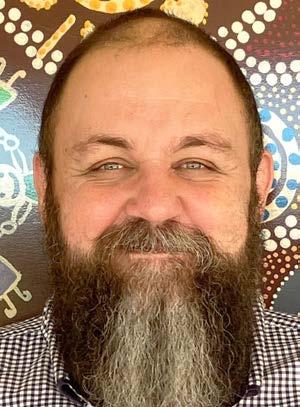
Theresa Anne is a KOA woman and recognised Traditional Owner of Guwa Country.
Theresa is deeply connected to her ancestral lands, which are formally managed and represented through the Guwa-Koa Aboriginal Corporation (GKAC).
The 2021 Native Title determination honours the ancestors who were removed from Country and strengthens the cultural identity of Koa descendants today. The significance of achieving native title provides justice for their ancestors who were removed from their birth land.
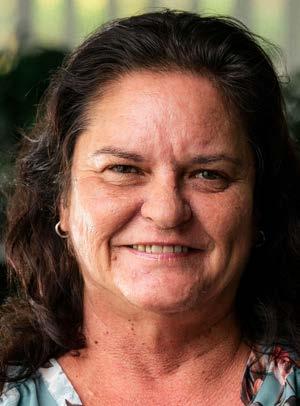
Guwa-Koa Aboriginal Corporation represents and is responsible to all the Koa People as Native Title Holders over the determination area.
For nearly a decade, Theresa has worked in the Brisbane North Intensive Family Support (BNIFS) program, mentoring colleagues and students to work alongside First Nations families with cultural insight and respect.
Act for Kids has been fortunate to have Theresa’s cultural wisdom and leadership as an active member of our RAP Working Group, helping to shape a meaningful and respectful approach to reconciliation.
“An active RAP shows real commitment to walking alongside First Nations people with respect and responsibility.”
Theresa Anne Mace

} Here is the land.
} Here are the seas and the waterways.
} Here are the stars and the sky.
} Here are my friends.
} And here am I.
} We are growing, playing, learning on the traditional lands of Aboriginal and Torres Strait Islander peoples.
} We walk hand in hand.

} Thank you for taking care of this beautiful place.
} We promise to treat it with kindness and grace.
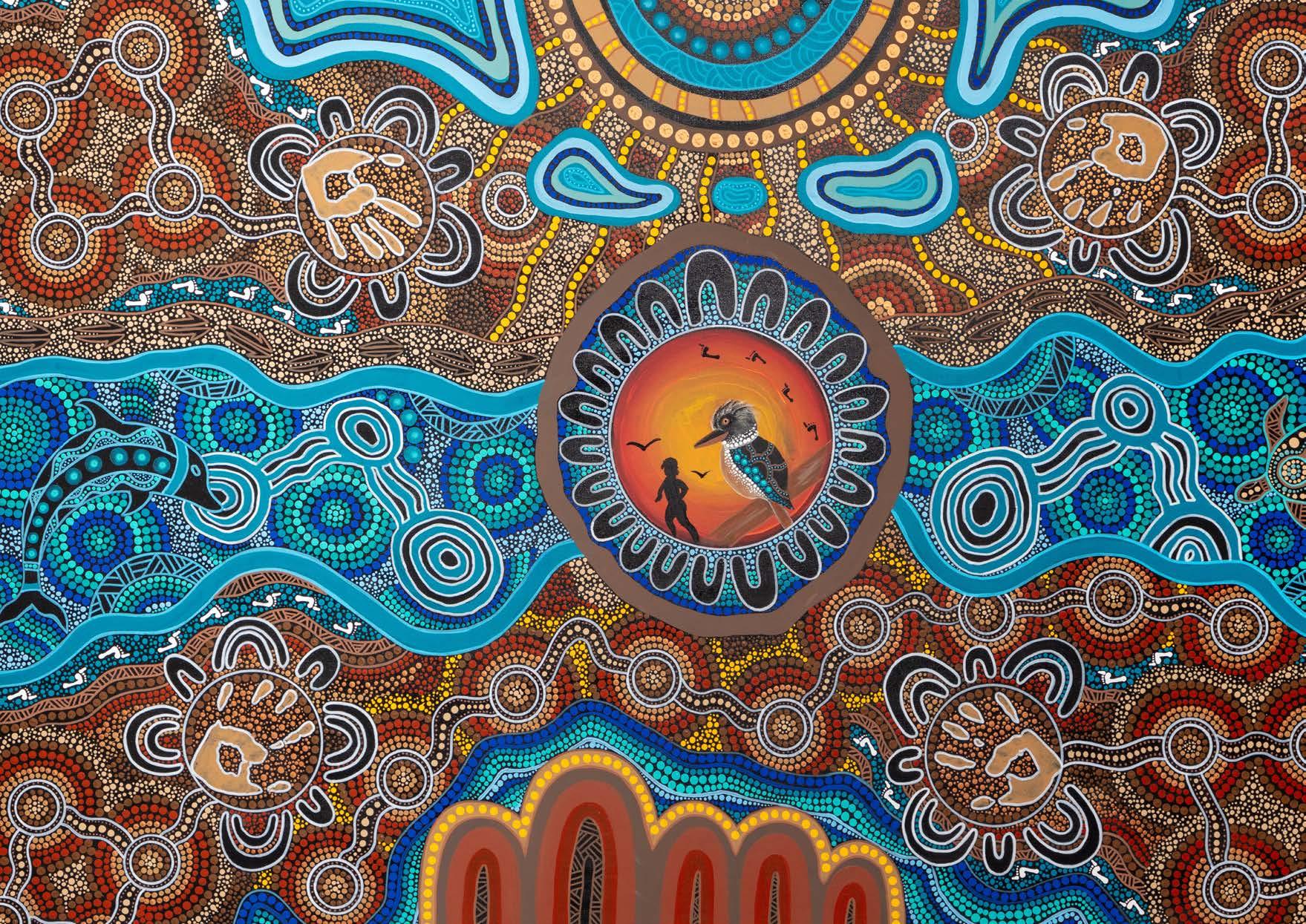

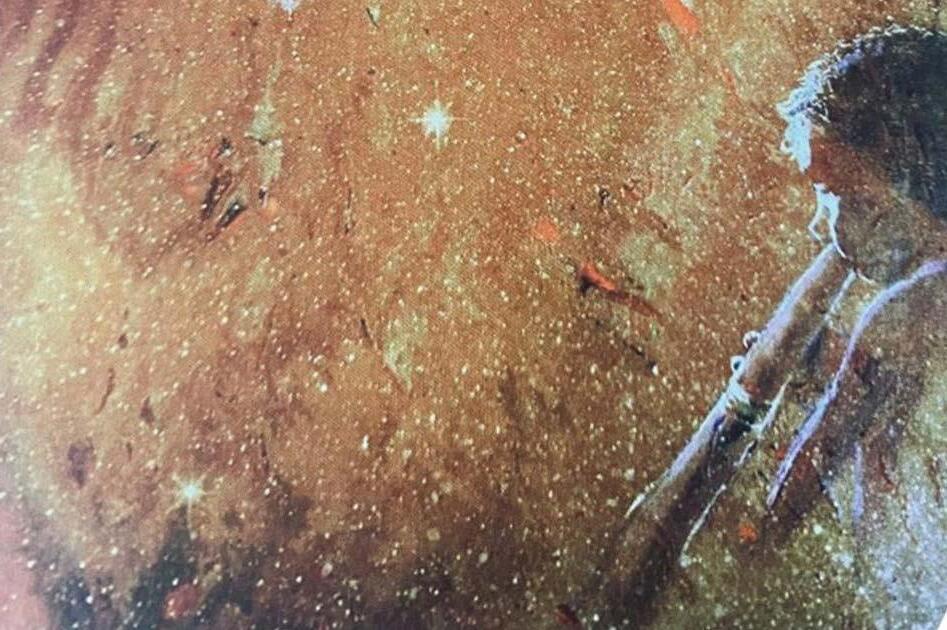
The artwork pieces below were submitted by our Act for Kids family. Through colour and story, the children imagine a future where reconciliation is lived every day.
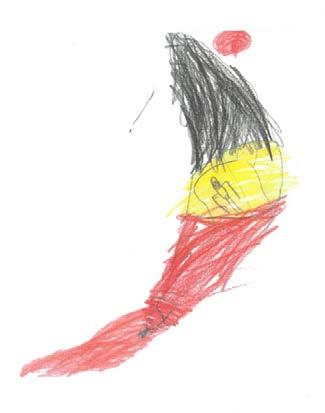
My Culture: A First Nations child exploring their connection to culture.
Boomerang: A boomerang with a magnetic launcher, snake lock, and spinning top – ingeniously designed by a seven-year-old client. His culture and imagination are two of his greatest strengths.
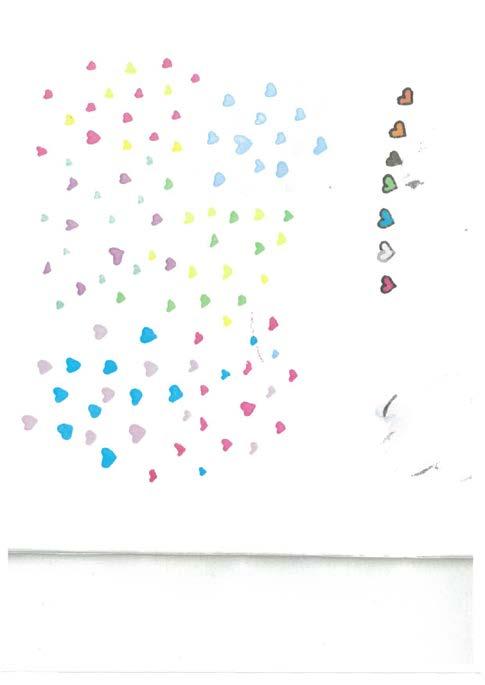
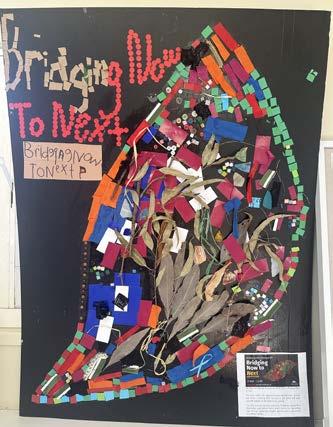
Bridging Now to Next: Childrens' reflection of reconciliation. Submitted by a RAP Working Group member.
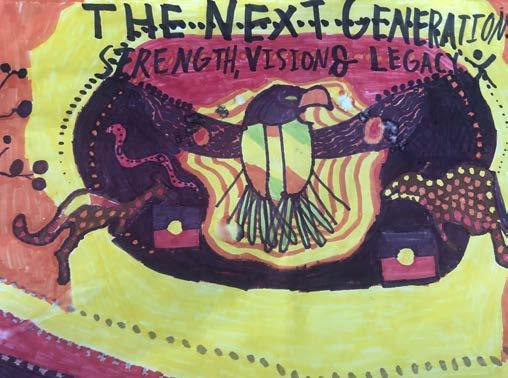
Artist: Vander, 10 years old.
At Act for Kids, we acknowledge the deep and enduring impact of intergenerational trauma and are committed to reducing the over-representation of Aboriginal and Torres Strait Islander children in the child protection system. To create lasting change, we recognise that relationships must be built on a foundation of trust, respect, and cultural humility.
This means listening deeply, walking alongside communities, and valuing the lived experiences, strengths and leadership of Aboriginal and Torres Strait Islander peoples. Genuine, two-way relationships allow us to work collaboratively, challenge systemic barriers, and foster healing and safety for every child and family we support.
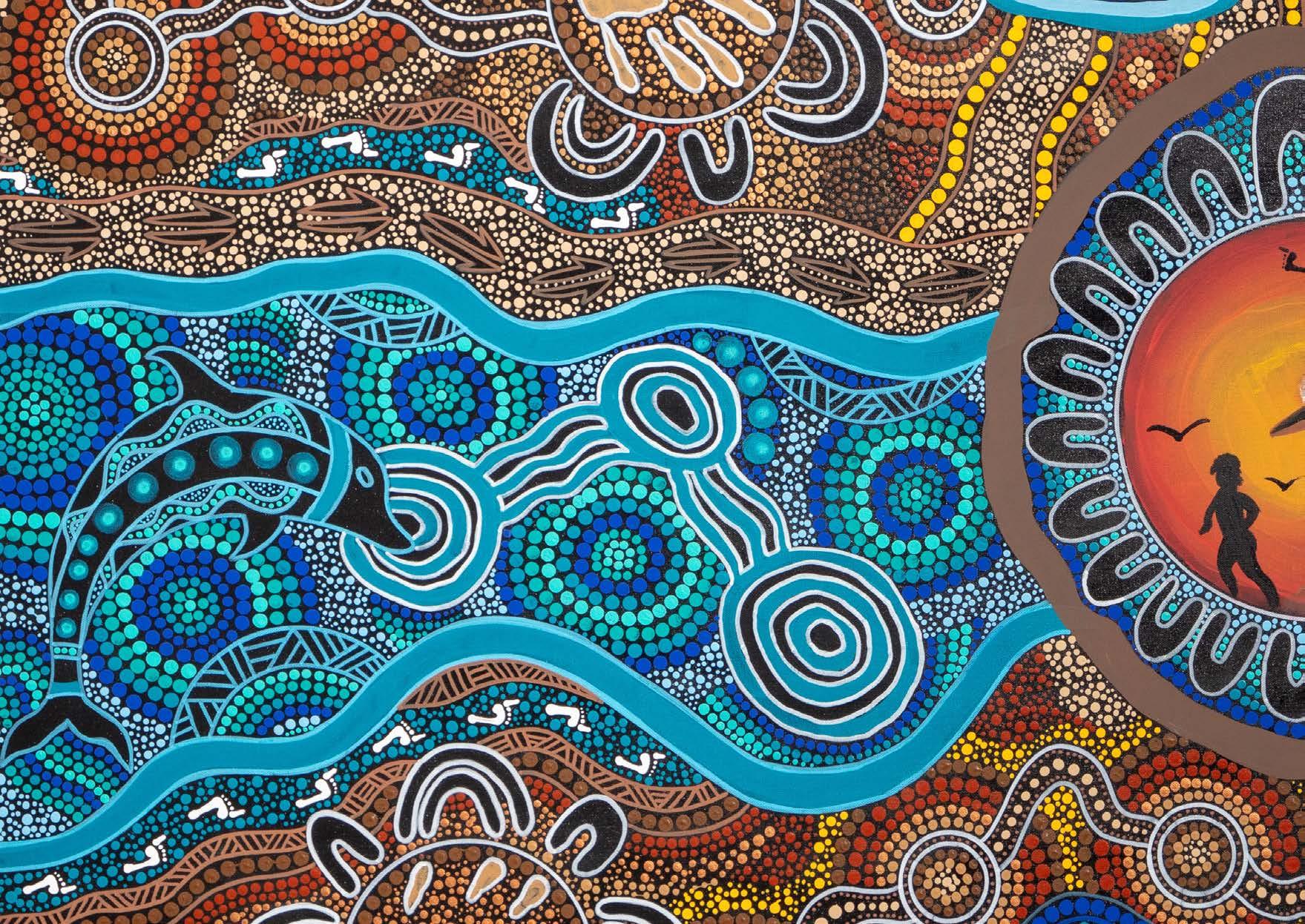
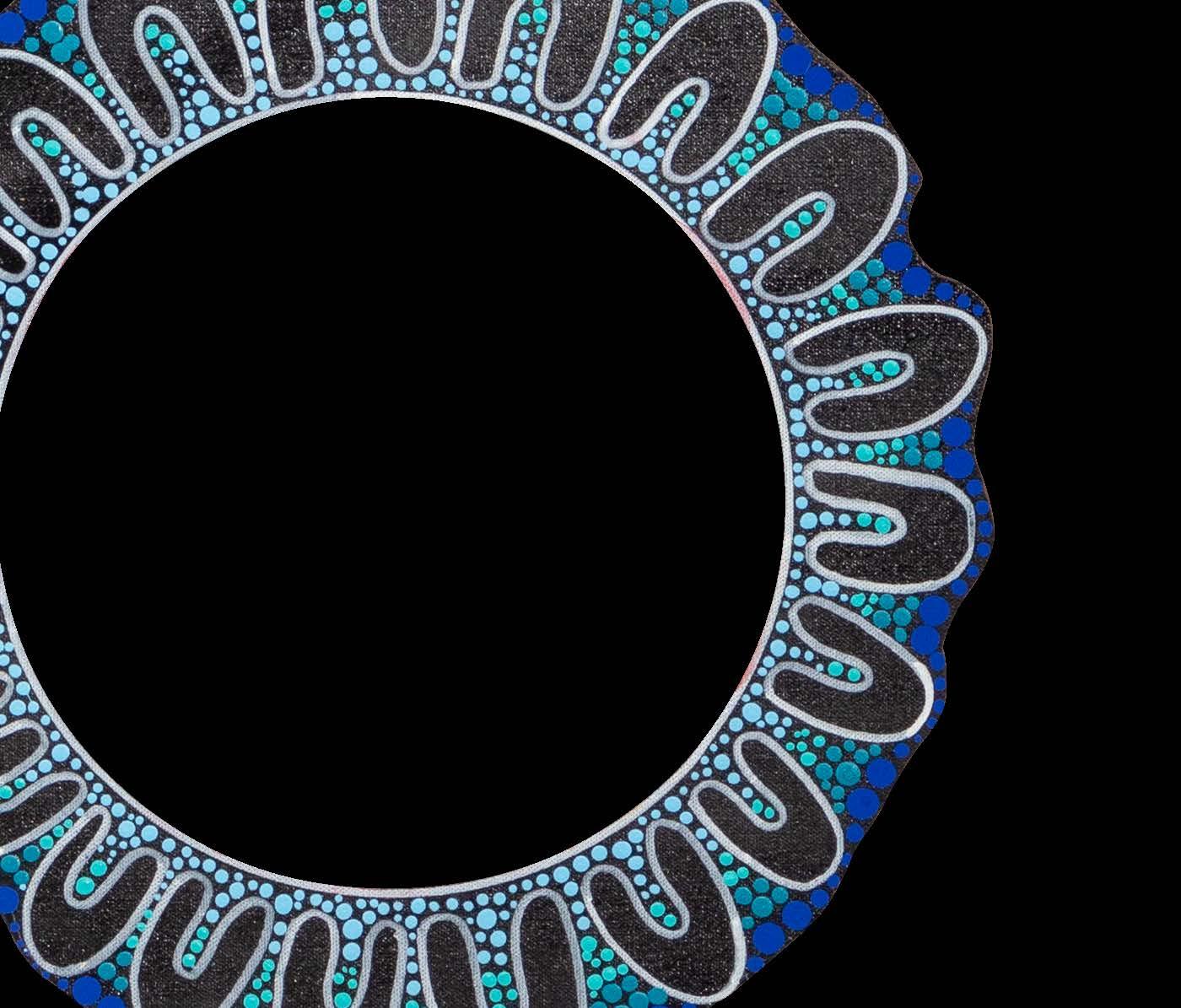
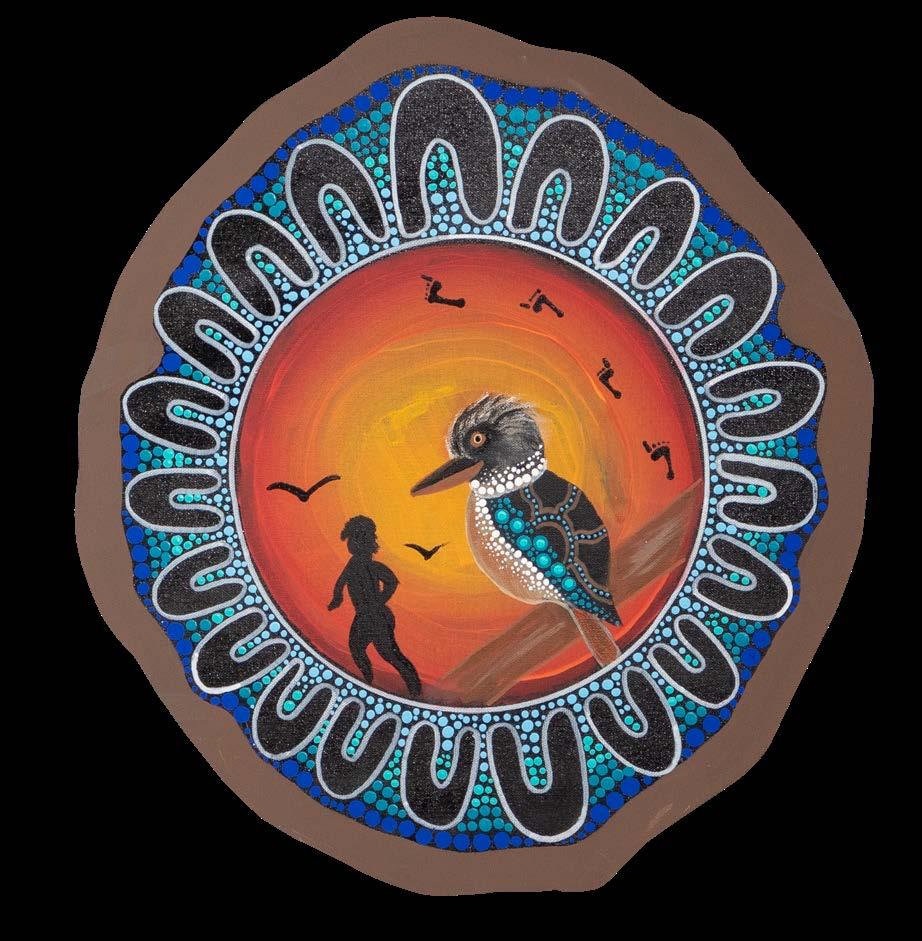
We will establish and maintain mutually beneficial relationships with Aboriginal and Torres Strait Islander stakeholders and organisations.
Meet with local Aboriginal and Torres Strait Islander stakeholders and organisations to develop guiding principles for future engagement.
Review the engagement plan to strengthen relationships with Aboriginal and Torres Strait Islander communities – including Elders, community organisations, support services, and community events, ensuring culturally respectful and inclusive engagement that supports young people’s connections to their culture and community and access to our services.
Support and expand the establishment of Yarning Circles across Act for Kids locations as spaces for cultural exchange, healing, and learning. Where Yarning Circles are already in place, continue to nurture and strengthen them in collaboration with local Elders, families, and communities. At other sites, work towards creating these spaces to enable young people to connect with their culture, while supporting team members to listen, learn, and build cultural understanding.
June 2026 Lead: Executive Director Service Operations
Support: Service Operations Leadership Team
June 2026
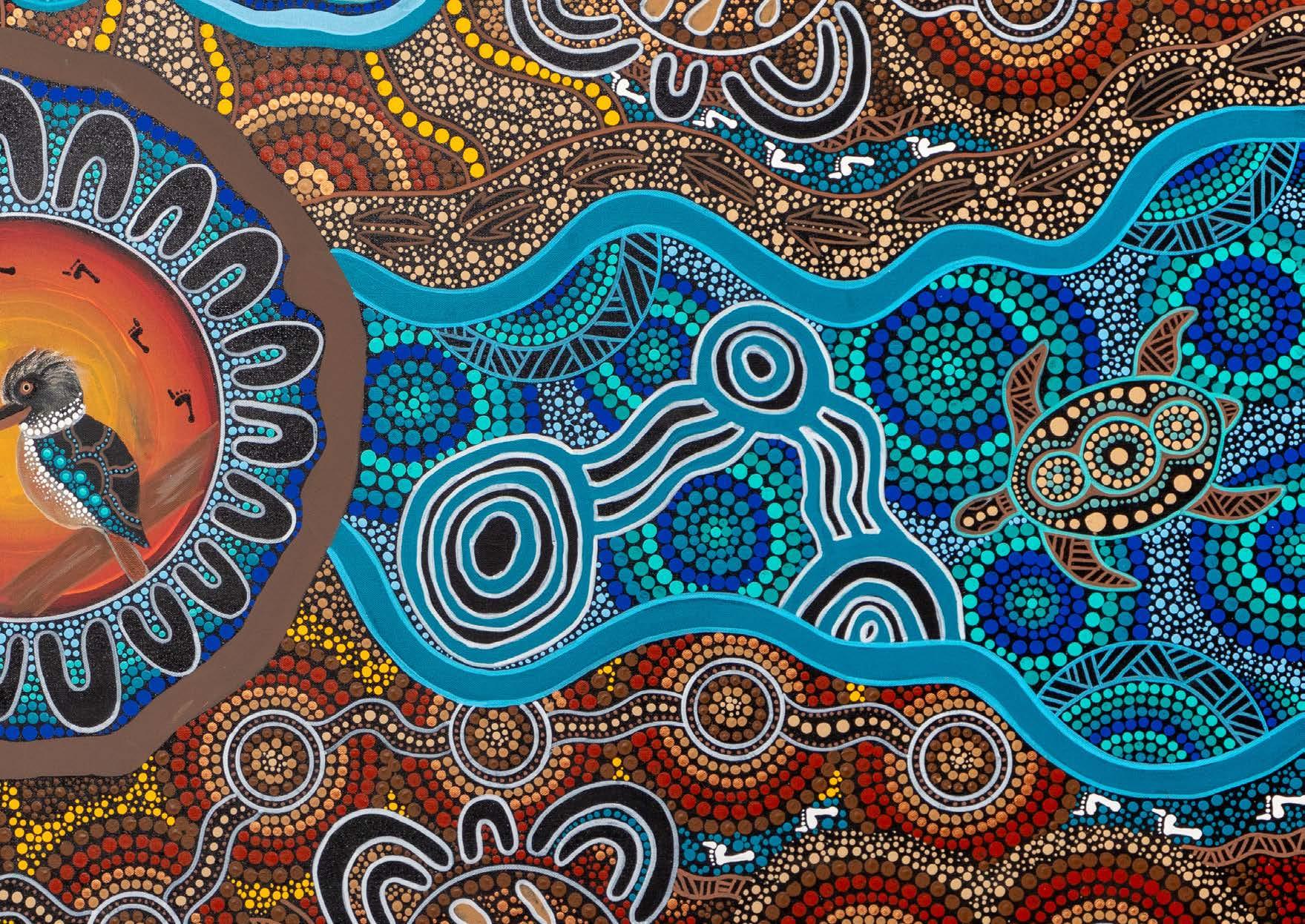
Cultural Capability & Strategy
We will build relationships through celebrating National Reconciliation Week (NRW).
Circulate Reconciliation Australia’s NRW resources and reconciliation materials to our staff.
March 2026 Lead: Director Cultural Capability & Strategy
Support: Service Operations Leadership Team
May – 3 June annually Director Cultural Capability & Strategy
RAP Working Group members to participate in an external NRW event. 27 May – 3 June annually RAP Working Group Chair
Encourage and support staff and senior leaders to participate in at least one external event to recognise and celebrate NRW. 27 May – 3 June annually Director Cultural Capability & Strategy
Organise at least one NRW event each year. 27 May – 3 June annually Executive Director Fundraising, Advocacy & Marketing
Register all our NRW events on Reconciliation Australia’s NRW website. 27 May – 3 June annually Executive Director Fundraising, Advocacy & Marketing
We will promote reconciliation through our sphere of influence.
Review and improve the staff engagement strategy to continue to raise awareness of reconciliation across our workforce.
Continue to demonstrate and communicate our commitment to reconciliation publicly through visible actions, partnerships and storytelling.
Continue to identify and act on opportunities to positively influence our external stakeholders to support and drive meaningful reconciliation outcomes.
Collaborate with RAP organisations and other like-minded organisations to develop innovative approaches to advance reconciliation.
Continue to actively promote reconciliation by sharing Act for Kids’ commitment to the Reconciliation Action Plan (RAP) with external stakeholders, partners, and the broader community. Include RAP progress updates in newsletters, Act for Kids and Youthrive websites, and through social media platforms.
Build and strengthen partnerships with Aboriginal and Torres Strait Islander organisations to co-design initiatives and programs that foster reconciliation and support children and young people in culturally meaningful ways.
June 2026
Executive Director People & Culture
June 2026
Lead: Chief Executive Officer
Support: Director Communication & Advocacy
June 2026
March 2027
June 2026
Executive Director Fundraising, Advocacy & Marketing
RAP Working Group Chair
March 2027
Executive Director Fundraising, Advocacy &
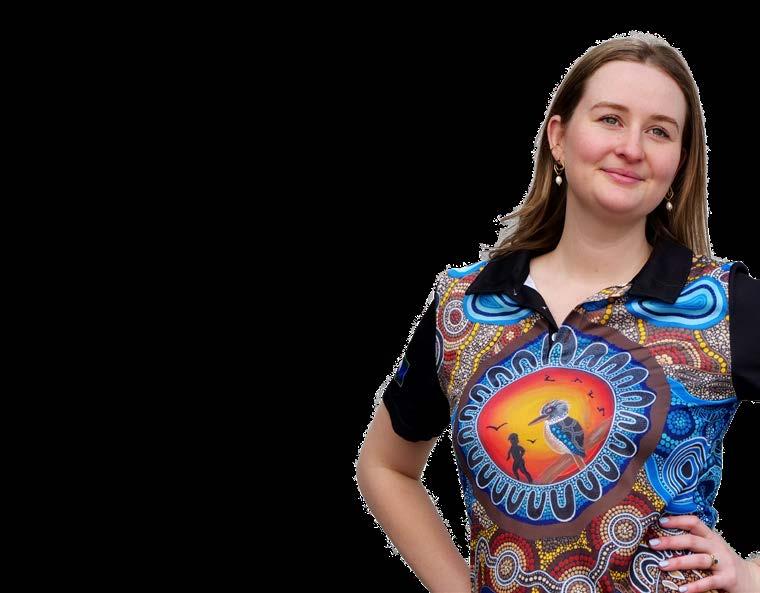


“We will promote reconciliation through our sphere of influence.”
We will promote positive race relations through
Continue to engage Aboriginal and Torres Strait Islander team members and/or advisors in the review of the Discrimination and Harassment Policy, to identify relevant anti-discrimination measures and address future needs. Ensure the updated policy is effectively implemented and clearly communicated across the organisation.
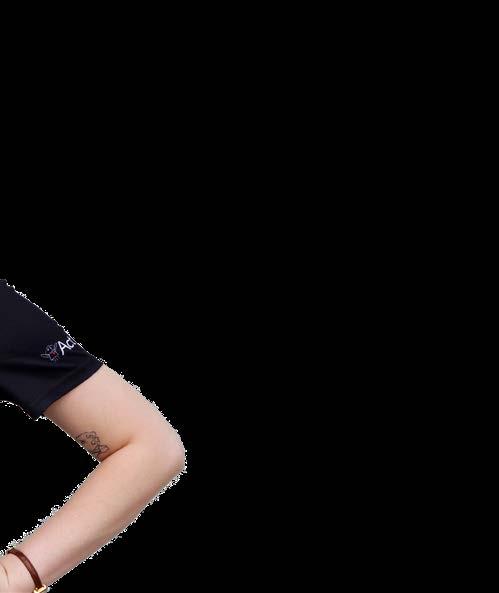
Review and update the Discrimination and Harassment Policy.
Continue to identify and implement opportunities to educate senior leaders on the effects of racism.

June 2026
Executive Director People & Culture
September 2026
Executive Director People & Culture

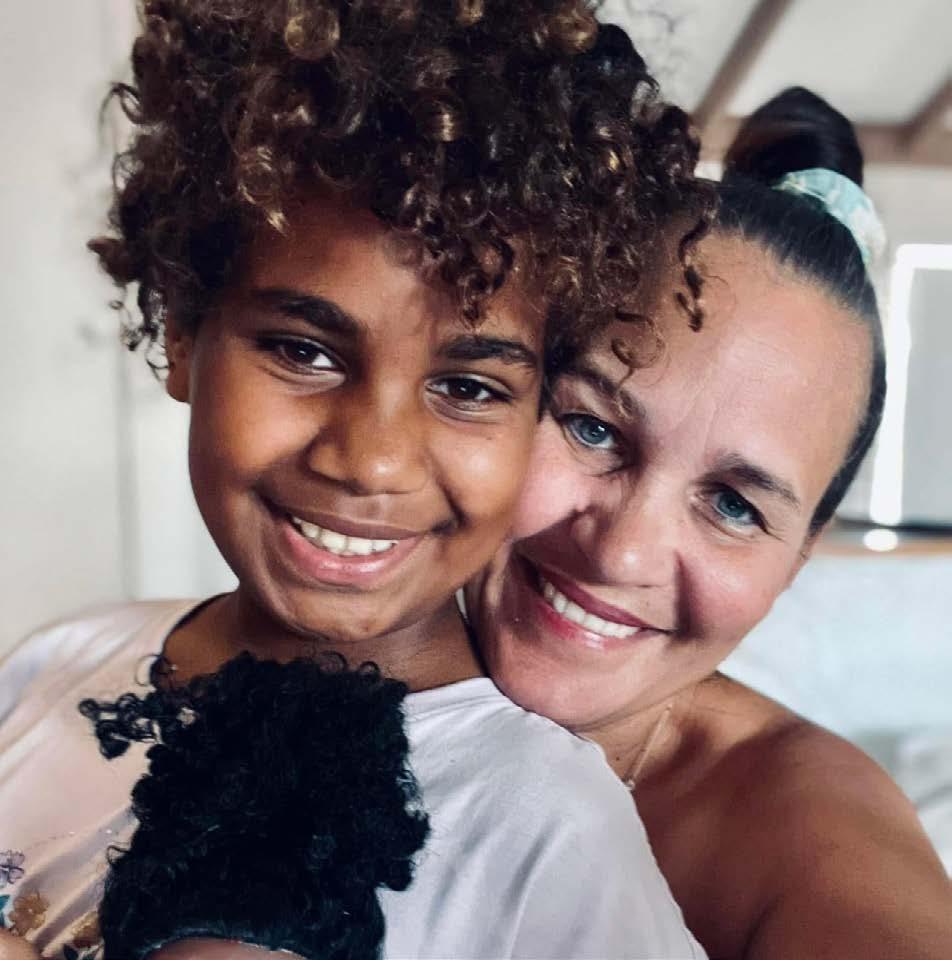
At Act for Kids, we believe reconciliation begins with deep respect for the cultures, histories and contributions of Aboriginal and Torres Strait Islander peoples.
To reduce the over-representation of First Nations children in the child protection system, we commit to embedding cultural safety in all we do. This includes listening, learning and acting with humility.
We honour Elders past and present, celebrate cultural diversity, and recognise the strength, resilience and leadership of First Nations peoples in shaping safer, more inclusive futures for all children and families.
We will increase understanding, value and recognition of Aboriginal and Torres Strait Islander cultures, histories, knowledge and rights through cultural learning.
Conduct a review of cultural learning needs within our organisation.
Consult local Traditional Owners and/or Aboriginal and Torres Strait Islander advisors to inform our cultural learning strategy.
Build on existing cultural learning initiatives by developing and communicating a formal strategy to guide and embed ongoing learning across our workforce.
Continue to provide cultural learning opportunities for RAP Working Group members, People and Culture leaders and other key leadership team members to deepen cultural capability and support culturally safe and inclusive leadership.
Establish a Cultural Practice Framework to embed culturally safe and appropriate practices into service delivery and workplace culture.
Formalise and implement an organisational Commitment to Cultural Humility, ensuring a continuous process of selfreflection, learning, and respect for the experiences and perspectives of Aboriginal and Torres Strait Islander peoples.
Provide a “Cultural Bag” to First Nations children and young people at intake to affirm culture and support their sense of belonging and identity.
Create and maintain culturally safe environments in all Act for Kids and Youthrive locations, reflecting respect and inclusion for Aboriginal and Torres Strait Islander peoples.
June 2026
June 2026

Director Cultural Capability & Strategy
Director Cultural Capability & Strategy
June 2026
Director Cultural Capability & Strategy
September 2027
Director Cultural Capability & Strategy
June 2026
Director Cultural Capability & Strategy
March 2026
Director Cultural Capability & Strategy
June 2026
Director Cultural Capability & Strategy
September 2026
Director Cultural Capability & Strategy
We will demonstrate respect to Aboriginal and Torres Strait Islander peoples by observing cultural protocols.
Increase team members’ understanding of the purpose and significance behind cultural protocols, including Acknowledgement of Country and Welcome to Country protocols.
Develop, implement and communicate a cultural protocol document, including protocols for Welcome to Country and Acknowledgement of Country and review it annually to ensure it remains culturally appropriate, respectful, and aligned with organisational practices.
Continue to invite local Traditional Owners or Custodians to deliver a Welcome to Country or other appropriate cultural protocol at significant events, recognising the importance of cultural authority, respect and connection to Country.
Continue to include an Acknowledgement of Country or other appropriate cultural protocols at the commencement of important meetings, with a focus on promoting consistency and cultural integrity across all locations and teams.
Provide opportunities for young people in Act for Kids programs to participate in observing cultural protocols, such as delivering or joining in Acknowledgements of Country during meetings and events alongside team members.
June 2026
Director Cultural Capability & Strategy
June, annually Director Cultural Capability & Strategy
September 2027
Executive Director Fundraising, Advocacy & Marketing
September 2027
Lead: Chief Executive Officer
Support: Executive Director Service Operations
June 2026
Executive Director Service Operations

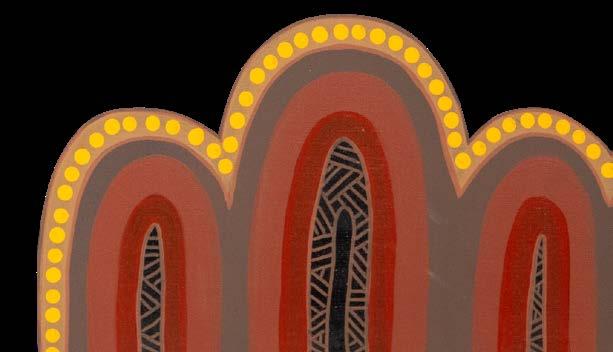
We will build respect for Aboriginal and Torres Strait Islander cultures and histories by celebrating NAIDOC Week.
RAP Working Group to participate in an external NAIDOC Week event.
Continue to review HR policies and procedures annually to ensure there are no barriers to team members participating in NAIDOC Week.
Promote and encourage participation in external NAIDOC events to all staff.
Ensure all Act for Kids staff are supported to actively participate in NAIDOC Week celebrations by hosting team events, encouraging attendance at community NAIDOC events, and incorporating NAIDOC themes into workplace activities and discussions.
Organise and facilitate local culturally immersive events during NAIDOC Week for young people in Act for Kids programs. Activities may include storytelling by Elders, art and craft workshops focused on traditional designs, and performances by Aboriginal and Torres Strait Islander artists and dancers.
Develop and distribute educational materials, including videos, articles, and activity packs, to increase awareness among teams, young people, and their families about the history and significance of NAIDOC Week.
First week in July, annually RAP Working Group Chair
March, annually Executive Director People & Culture
June, annually
Chief Executive Officer
June, annually Lead: Executive Director Service Operations
Support: Service Operations Leadership Team
First week in July, annually
Lead: Executive Director Service Operations
Support: Service Operations Leadership Team
First week in July, annually
Director Cultural Capability & Strategy
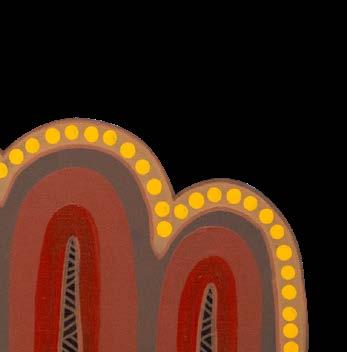
Recognise the contributions of Aboriginal and Torres Strait Islander team members, young people, or community members during NAIDOC Week by presenting awards or acknowledgements that celebrate their cultural achievements and contributions.
First week in July, annually Director Cultural Capability & Strategy

We will create opportunities for young people within Act for Kids to foster growth, cultural learning, and future success in education, employment and their communities.

Consult with First Nations advisors to develop and facilitate workshops with First Nations young people ensuring they have a voice about Act for Kids’ youth-focused deliverables, encouraging their input, engagement, and participation in shaping initiatives.
Facilitate a cultural activity in each program, led by an Aboriginal and/or Torres Strait Islander team member or external cultural partner, to share traditional practices with First Nations young people, such as storytelling, bush tucker preparation, weaving, carving, and dance.
Create an “Innovation Project” focusing on initiatives that enhance outcomes for First Nations children, developed in consultation with Aboriginal and Torres Strait Islander team members and prioritising culturally responsive and innovative solutions.
September 2026 Director Cultural Capability & Strategy
September 2026 Executive Director Service Operations
June 2026 Director Service Innovation & Impact
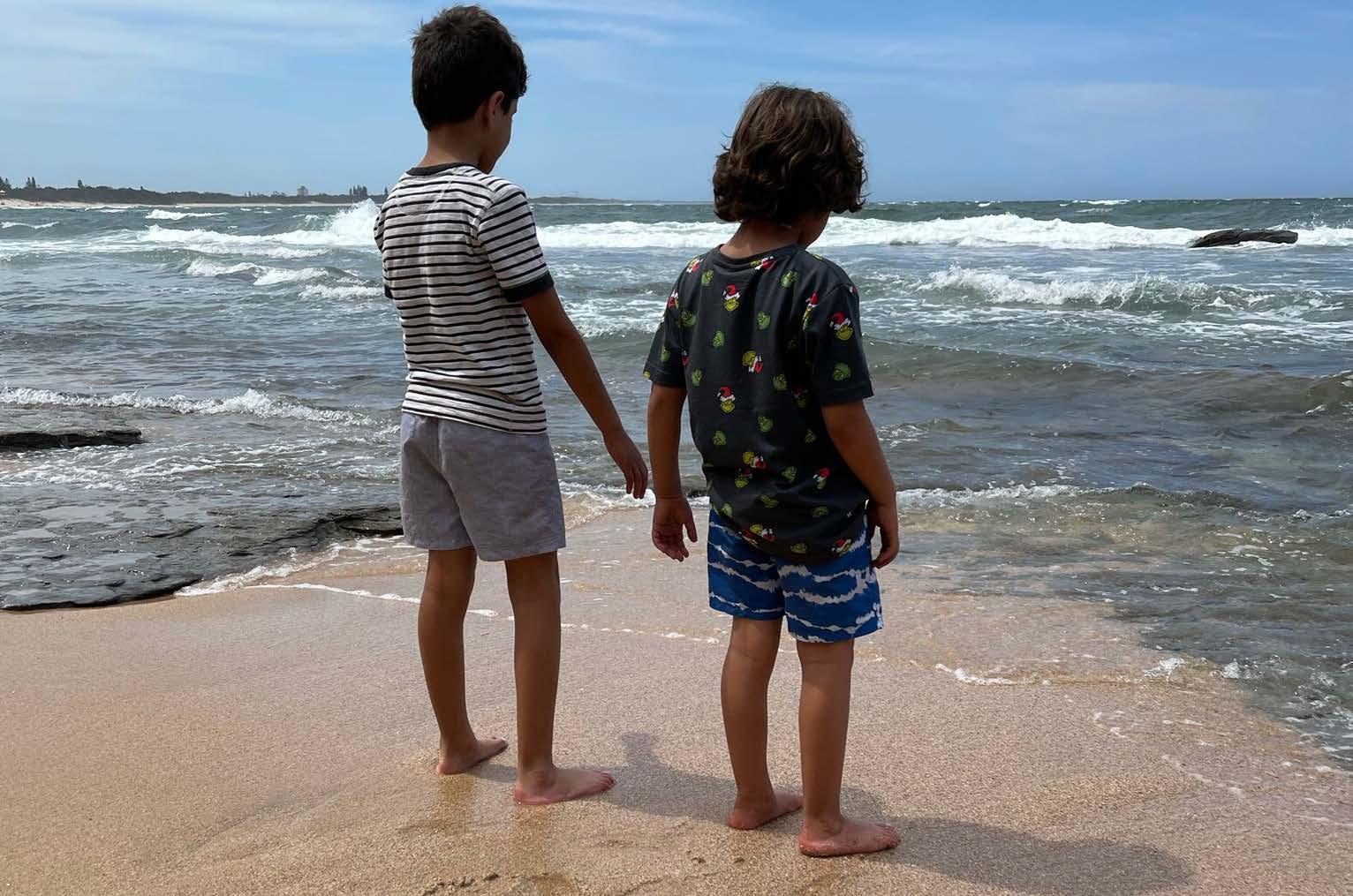
“At Act for Kids, we acknowledge the deep and enduring impact of intergenerational trauma and are committed to reducing the over-representation of Aboriginal and Torres Strait Islander children in the child protection system. To create lasting change, we recognise that relationships must be built on a foundation of trust, respect, and cultural humility.”
Act for Kids is committed to creating meaningful opportunities that support the strength and self-determination of Aboriginal and Torres Strait Islander peoples and communities.
To help reduce the over-representation of First Nations children in the child protection system, we will invest in sustainable employment, culturally safe professional development, and inclusive procurement practices.
By fostering economic participation and building capability, we support communities to nurture safe, strong and thriving children – led by their own knowledge, strengths, and cultural ways of caring.
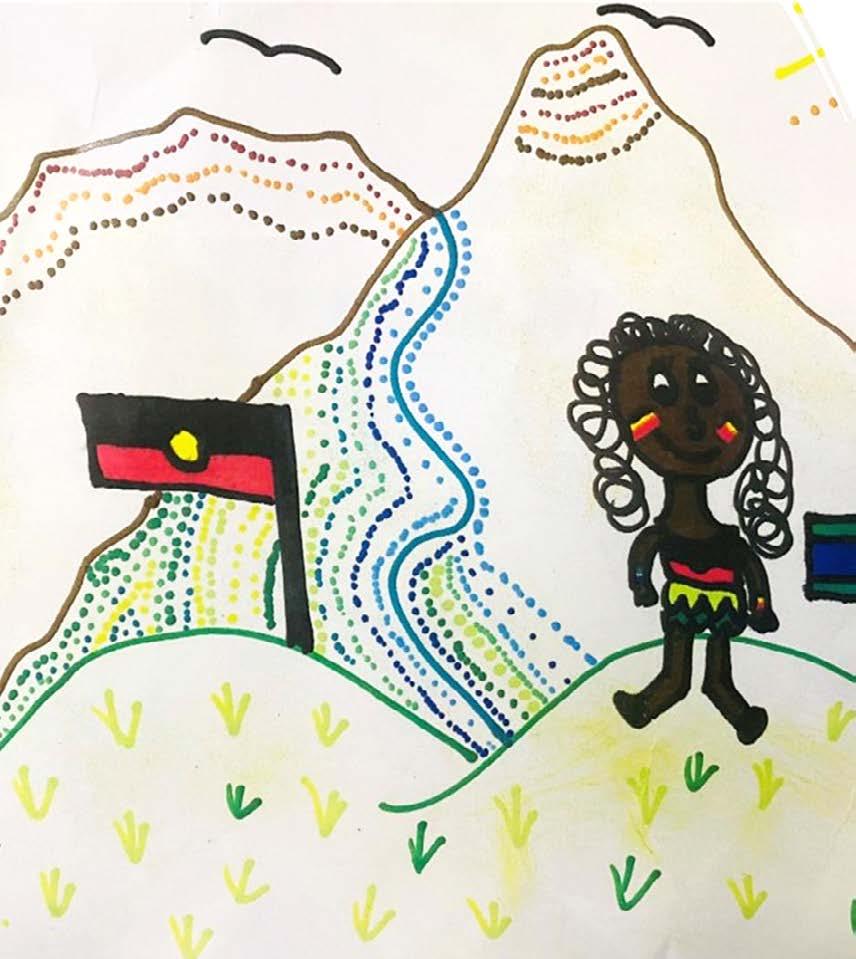

We will improve employment outcomes by increasing Aboriginal and Torres Strait Islander recruitment, retention, and professional development.
Build understanding of current Aboriginal and Torres Strait Islander staffing to inform future employment and professional development opportunities.
Develop and implement an Aboriginal and Torres Strait Islander recruitment, retention and professional development strategy, led and shared by Aboriginal and Torres Strait Islander team members. Consult widely and draw on the insights from culture surveys to ensure the strategy is culturally informed, inclusive and responsive to the needs and aspirations of Aboriginal and Torres Strait Islander peoples.
Implement targeted recruitment strategies to reach and attract Aboriginal and Torres Strait Islander applicants, ensuring culturally safe and inclusive pathways into our organisation.
Review HR and recruitment procedures and policies to remove barriers to Aboriginal and Torres Strait Islander participation in our workplace.
Establish an internal yarning circle for Aboriginal and Torres Strait Islander team members to support each other culturally. The group will provide a safe space for team members to share experiences, offer feedback, and contribute to organisational decision-making.
Identify First Nations engagement opportunities within existing positions that are identified positions and are regionally based.
June 2026 Executive Director People & Culture

June 2026
Director People & Culture
March 2026 Director People, Culture & Safety
June 2026
Executive Director People & Culture
November 2026
Director Cultural Capability & Strategy
June 2026 Director Cultural Capability & Strategy
We will increase Aboriginal and Torres Strait Islander supplier diversity to support improved economic and social outcomes.
Review and strengthen our Aboriginal and Torres Strait Islander procurement strategy as required.
Revisit and evaluate the opportunity of Supply Nation membership.
Strengthen and expand existing efforts to procure goods and services from Aboriginal and Torres Strait Islander businesses, and ensure these opportunities are communicated to team members.
September 2027 Director
September 2027 Director Business Operations
September 2027 Director Business Operations

Review and update procurement practices to remove barriers – when identified – to procuring goods and services from Aboriginal and Torres Strait Islander businesses.
Continue to develop and strengthen commercial relationships with Aboriginal and/or Torres Strait Islander businesses and actively seek new partnership opportunities.
September 2027
September 2027
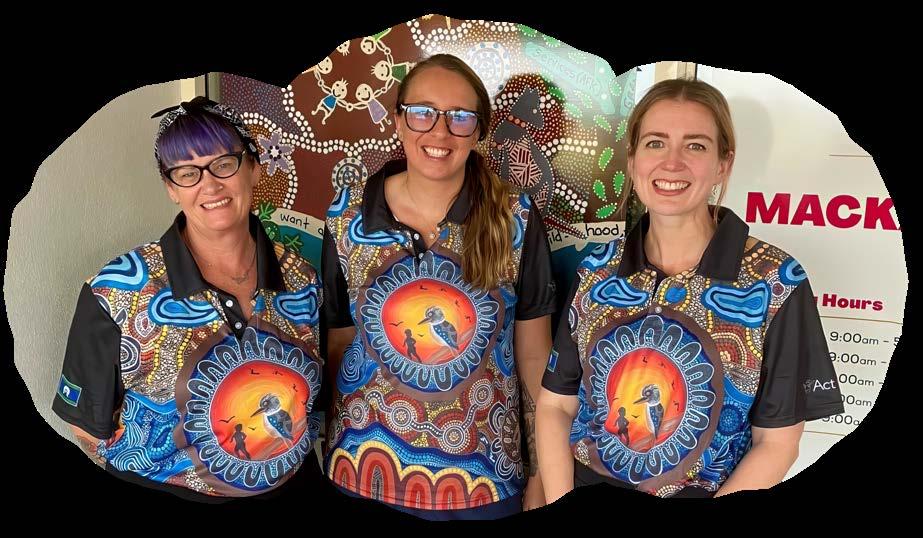
Action
We will establish and maintain an effective RAP Working Group (RWG) to drive governance of the RAP.
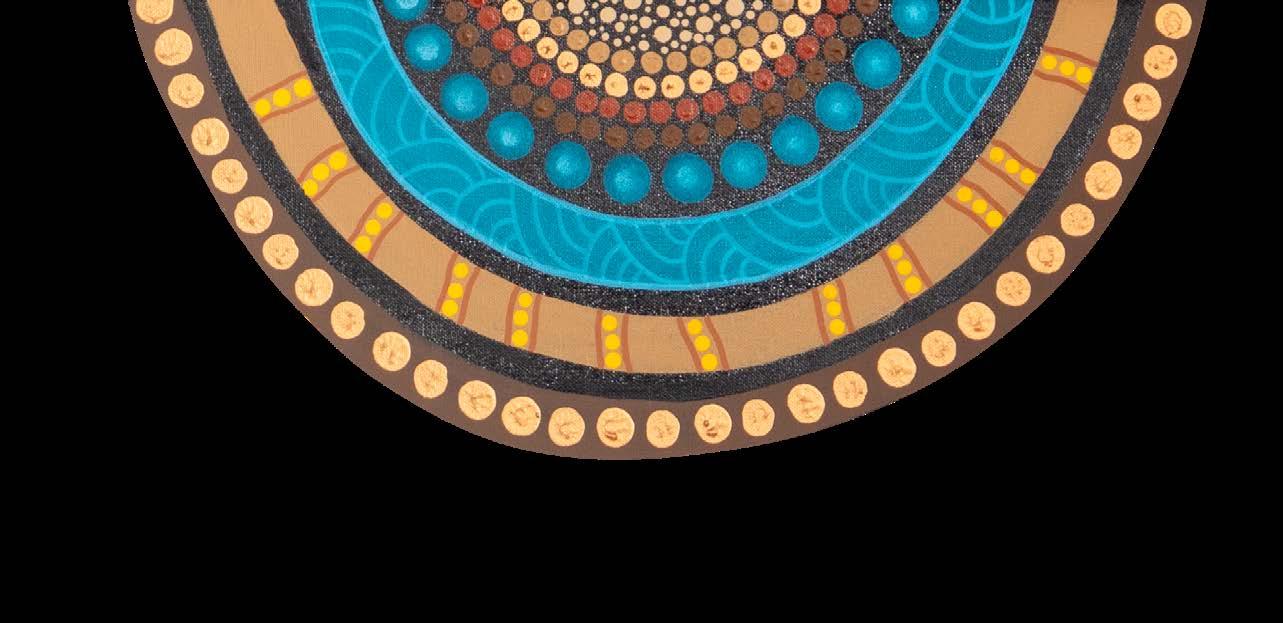

Deliverable
Maintain Aboriginal and Torres Strait Islander representation on the RWG. June 2026 RAP Working Group Chair
Establish, finalise and apply a Terms of Reference for the RWG October 2025 RAP Working Group Chair
Meet at least four times per year to drive and monitor RAP implementation.
March, June, September, December, annually RAP Working Group Chair
We will provide appropriate support for effective implementation of RAP commitments.
Define resource needs for RAP implementation. March, annually
Engage our senior leaders and other staff in the delivery of RAP commitments.
Define and maintain appropriate systems to track, measure and report on RAP commitments.
Build consistent and purpose-driven data collection and reporting practices relating to Aboriginal and Torres Strait Islander clients and workforce, to support culturally informed practice, workforce planning and cultural safety initiatives.
Maintain a RAP Executive Champion from senior leadership to champion our RAP internally.
Establish a RAP Implementation Champions group across teams to advocate for RAP initiatives, encourage participation, and embed deliverables into daily operations.
Publish quarterly updates on RAP deliverables - including achievements, progress and areas for improvement through internal communications, quarterly and annual reports, and external channels, to maintain transparency and accountability.
Establish channels for staff, stakeholders, and community members to provide feedback on RAP deliverables and suggest improvements.

Executive Director Service Operations
September 2027 RAP Working Group Chair
October 2025 RAP Working Group Chair
June 2026
Executive Director Service Operations
June 2027
March 2026
Director Cultural Capability & Strategy
Director Cultural Capability & Strategy
March, June, September, December, annually
Director Cultural Capability & Strategy
September 2026
Director Cultural Capability & Strategy
We will build accountability and transparency through reporting RAP achievements, challenges and learnings both internally and externally.

We will continue our reconciliation journey by developing our next RAP.
Contact Reconciliation Australia to verify that our primary and secondary contact details are up to date, to ensure we do not miss out on important RAP correspondence.
Contact Reconciliation Australia to request our unique link to access the online RAP Impact Survey.
Complete and submit the annual RAP Impact Survey to Reconciliation Australia.
July, annually
01 August, annually
30 September, annually
Report RAP progress to all staff and senior leaders quarterly. March, June, September, December, annually
Publicly report our RAP achievements, challenges and learnings, annually.
Investigate participating in Reconciliation Australia’s biennial Workplace RAP Barometer.
Submit a traffic light report to Reconciliation Australia at the conclusion of this RAP.
Register via Reconciliation Australia’s website to begin developing our next RAP.
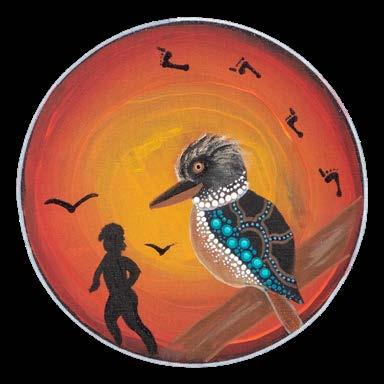
& Strategy
December, annually
June 2026
October 2027
September 2026
& Strategy
Capability & Strategy
Capability & Strategy
“And in walking them home… we find our own way too.”
